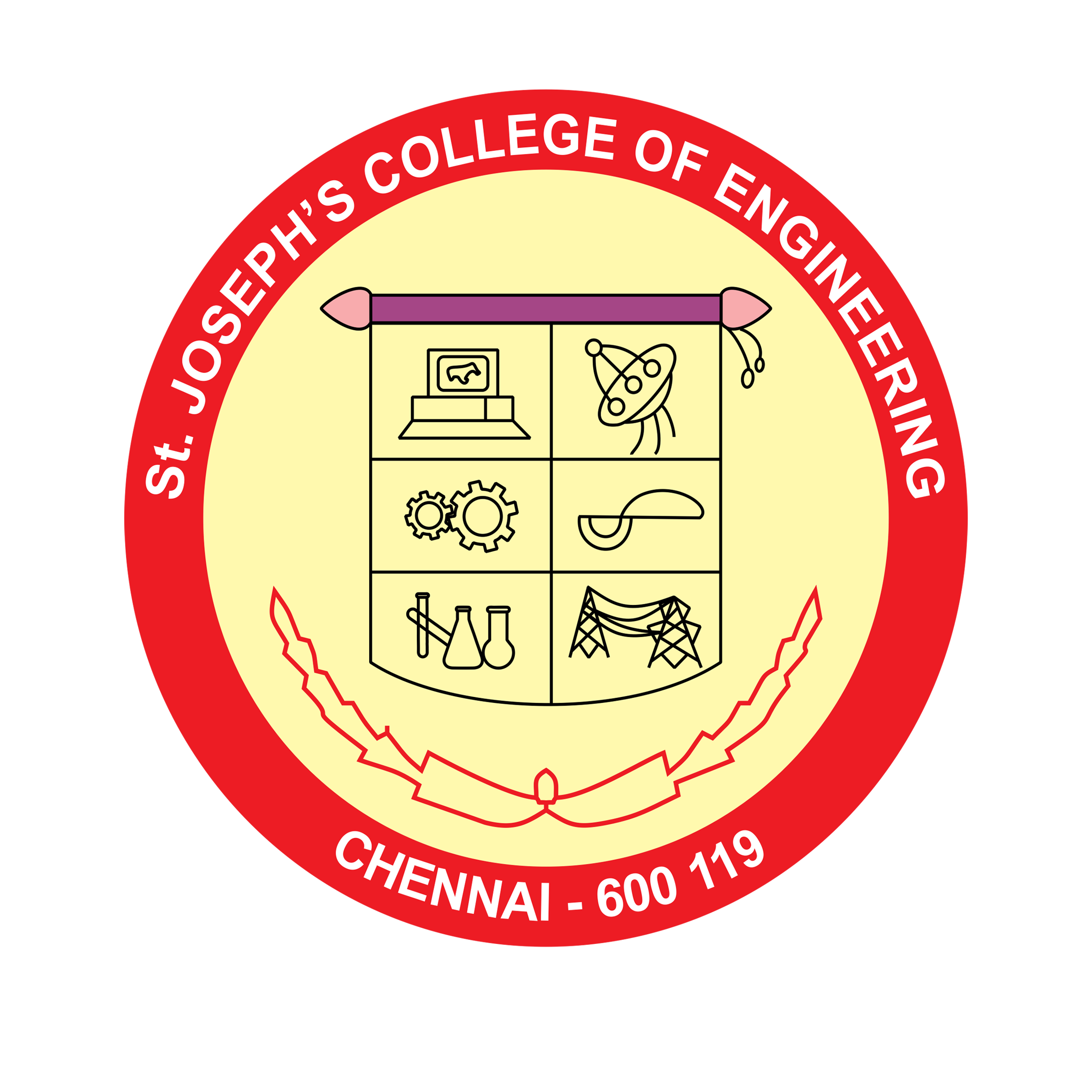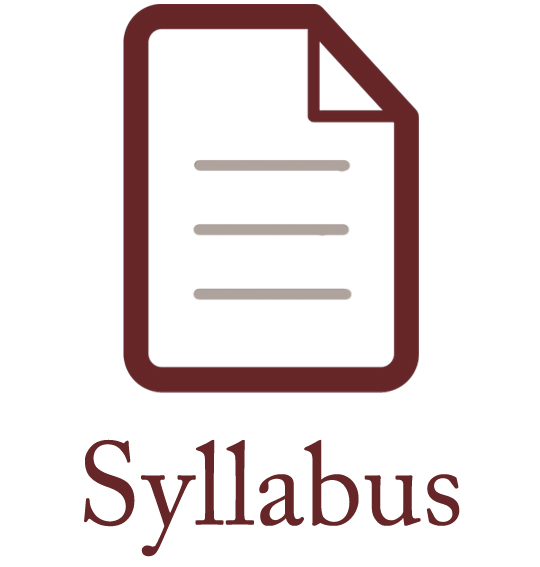Faculty
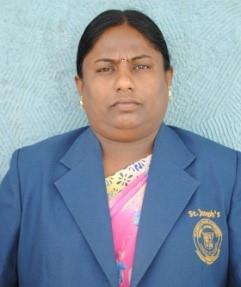
Dr.V.Muthu Lakshmi
Professor & Head of the Department
Know More
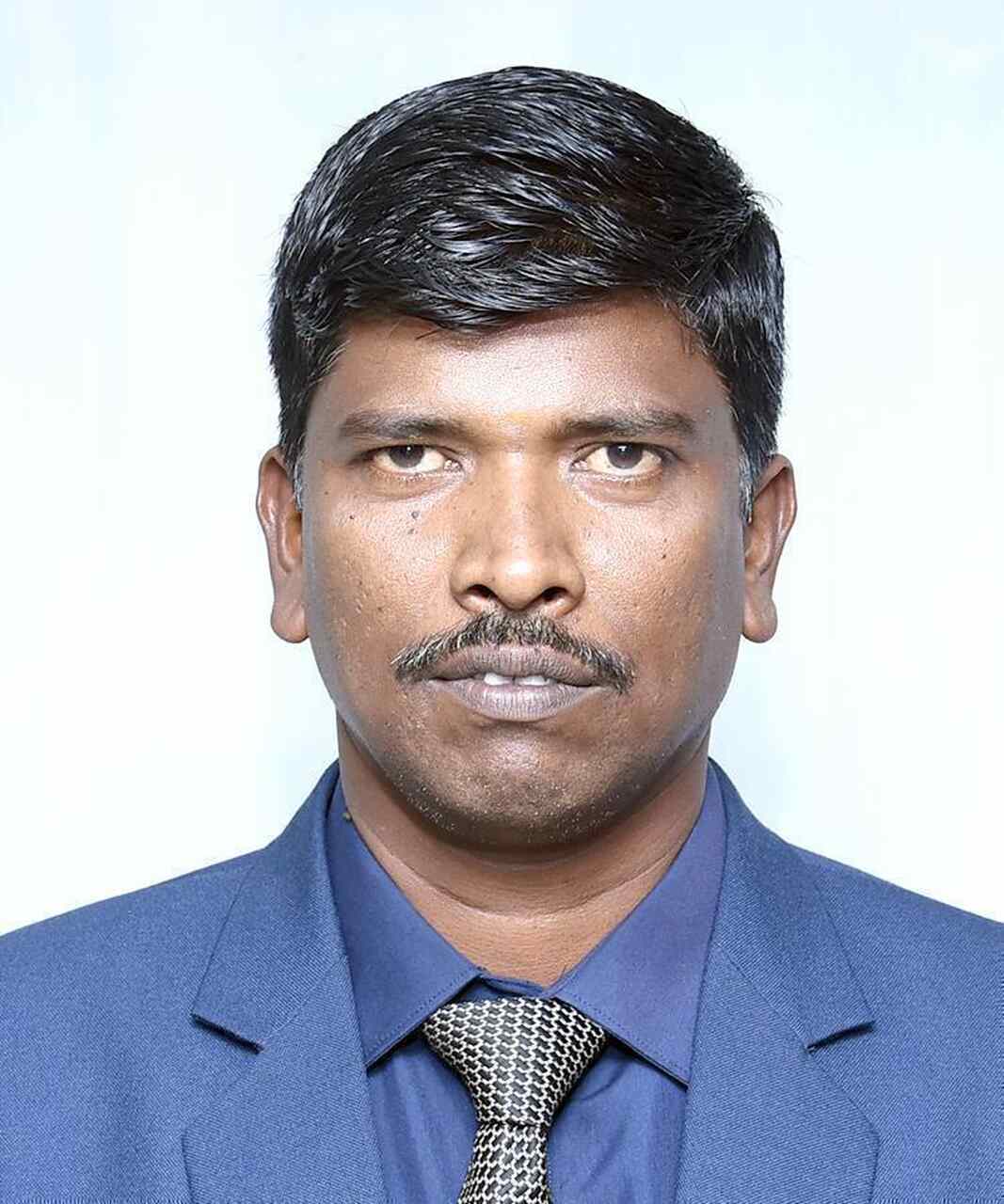
Dr.A.Chandrasekar
Professor & Dean of Research
Know More
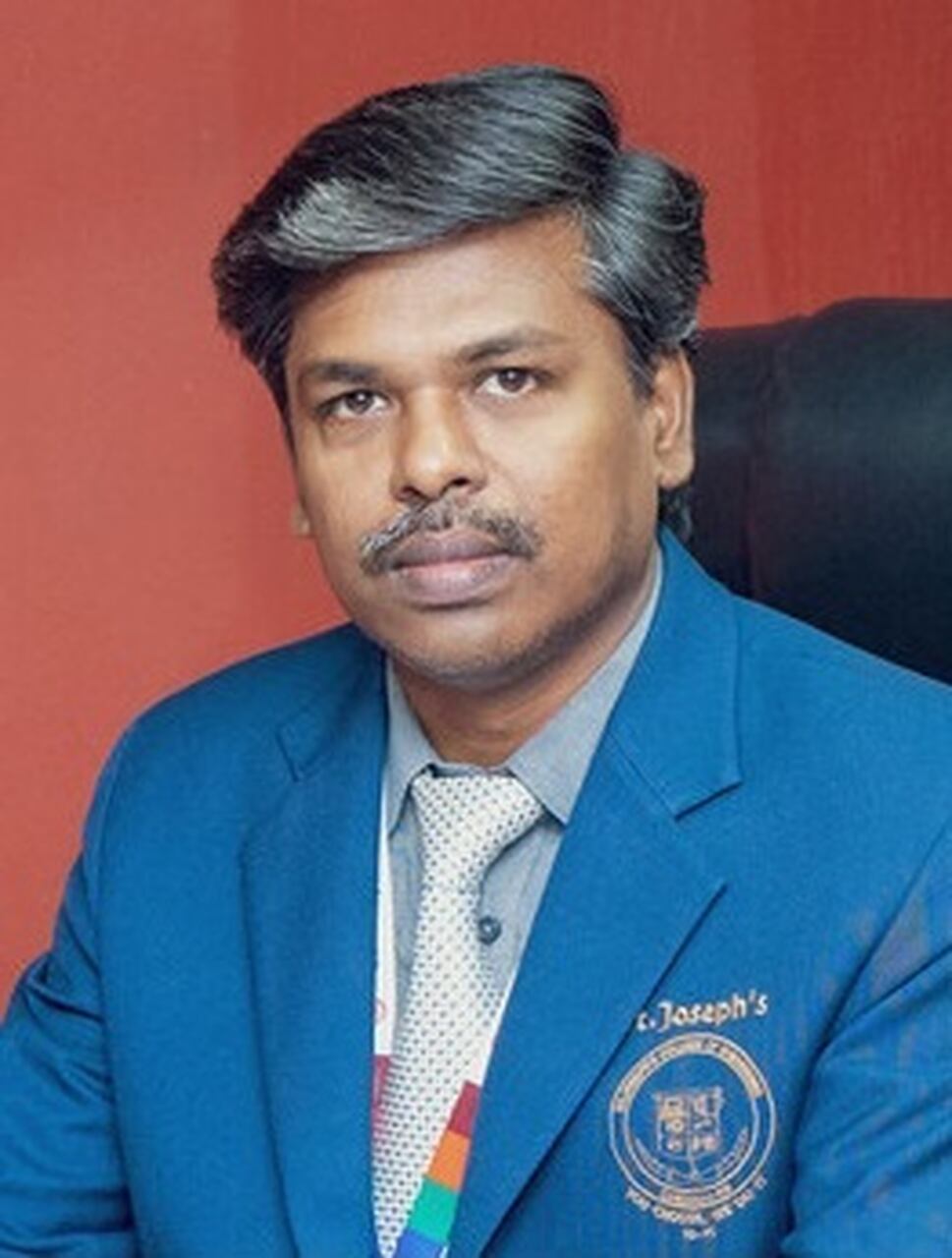
Dr.B.Diwan
Professor & Dean of Placement
Know More
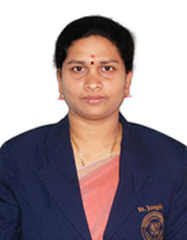
Dr.B.Uma Maheswari C
Professor
Know More
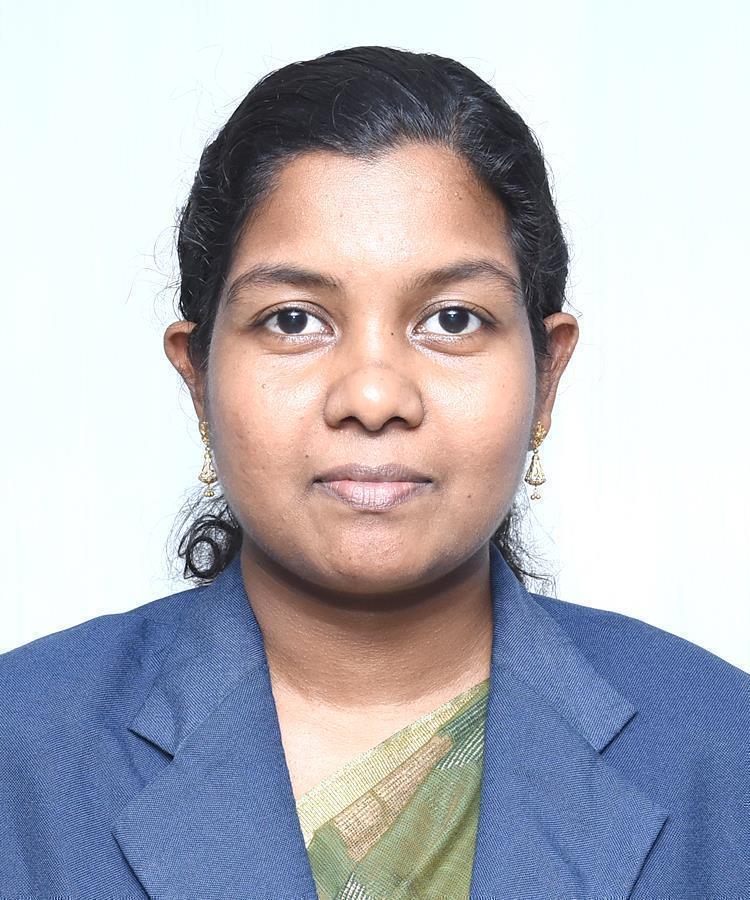
Dr.J.T.Anita Rose
Professor
Know More
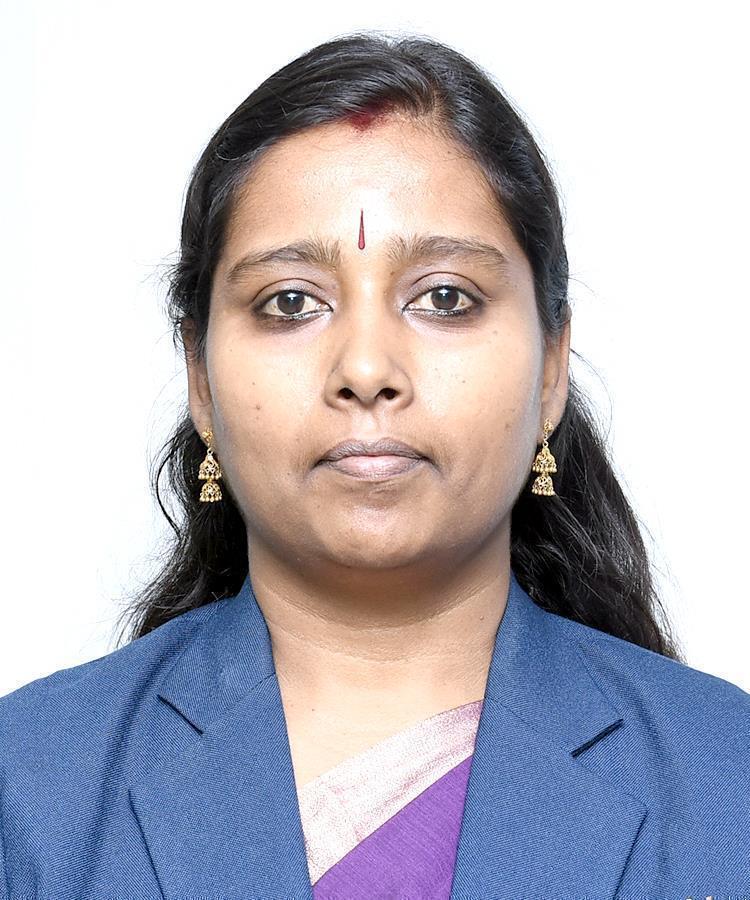
Dr.R.Hemalatha
Professor
Know More
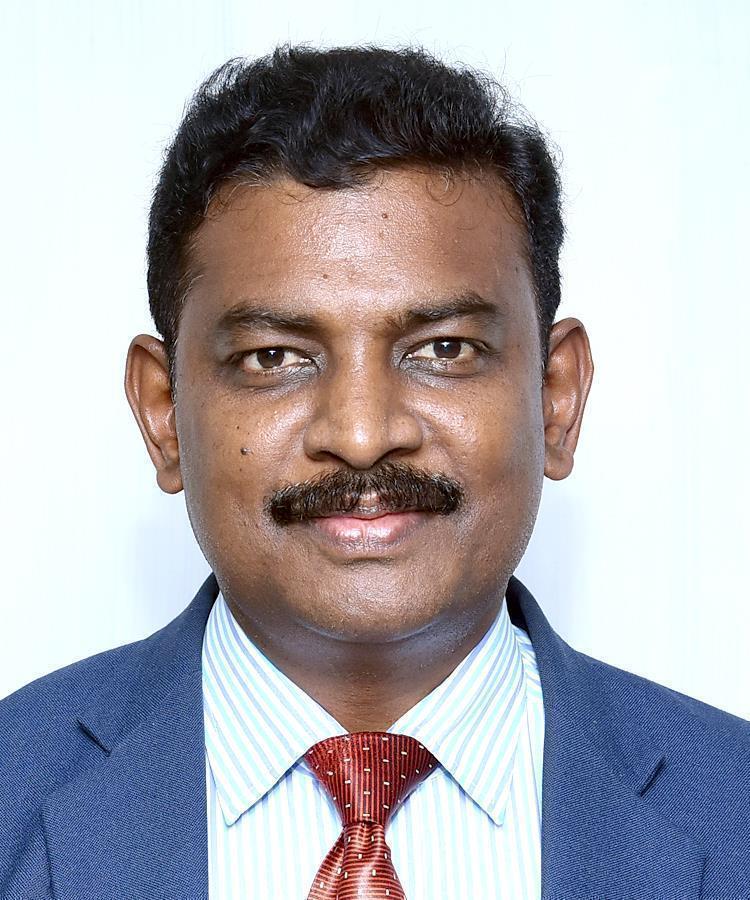
Dr.C.Pandeeswaran
Associate Professor
Know More
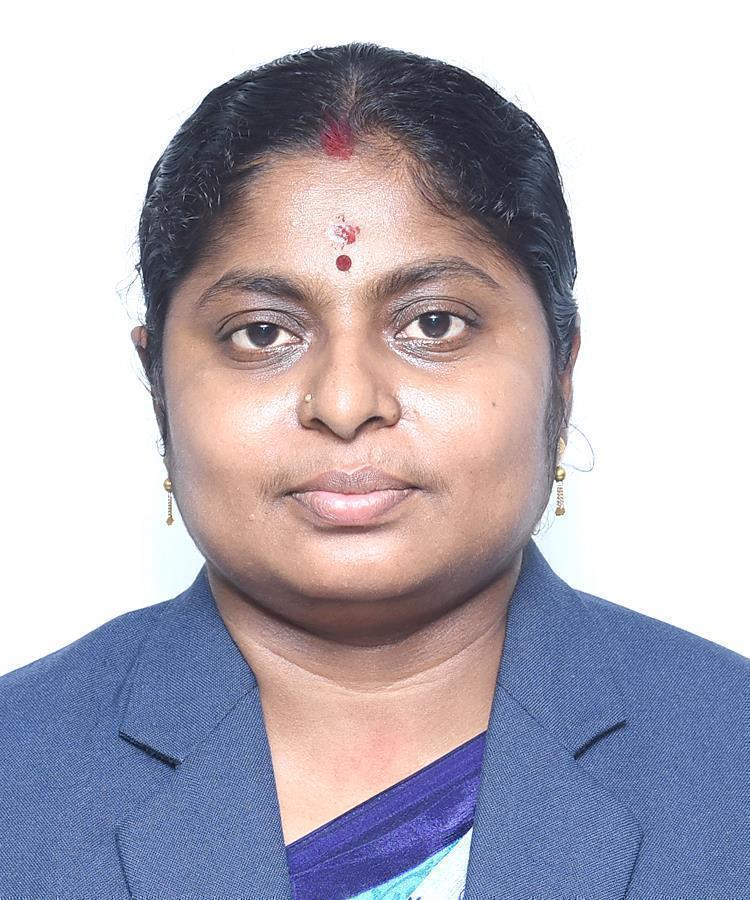
Dr.G.Brindha
Associate Professor
Know More
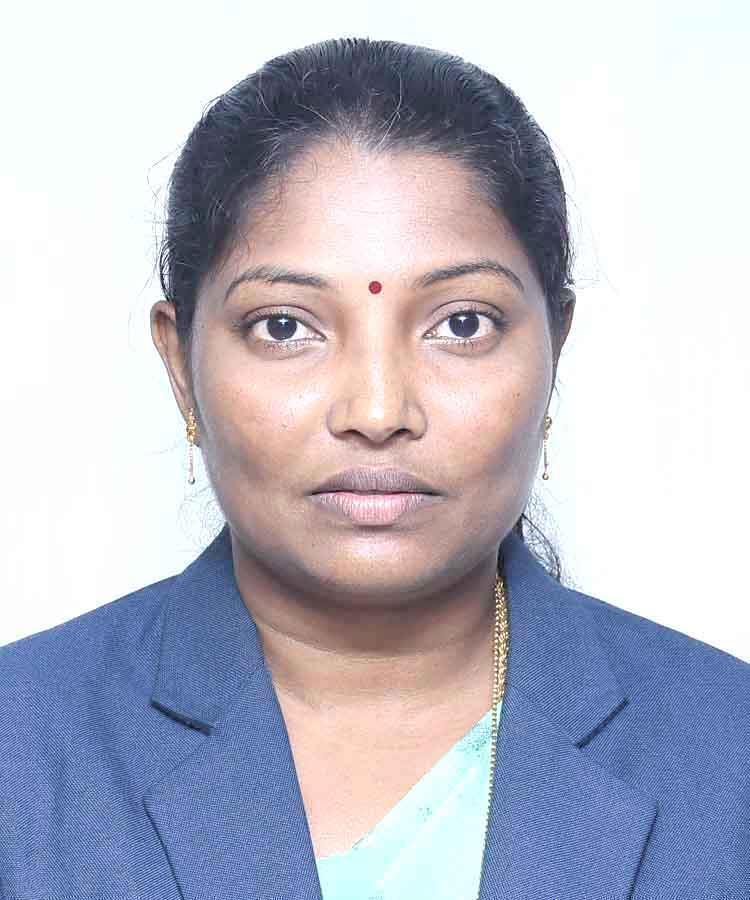
Dr.E.Ahila Devi
Associate Professor
Know More

Dr.Shajilin Loret J B
Associate Professor
Know More
Dr.S.Janani
Associate Professor
Know More
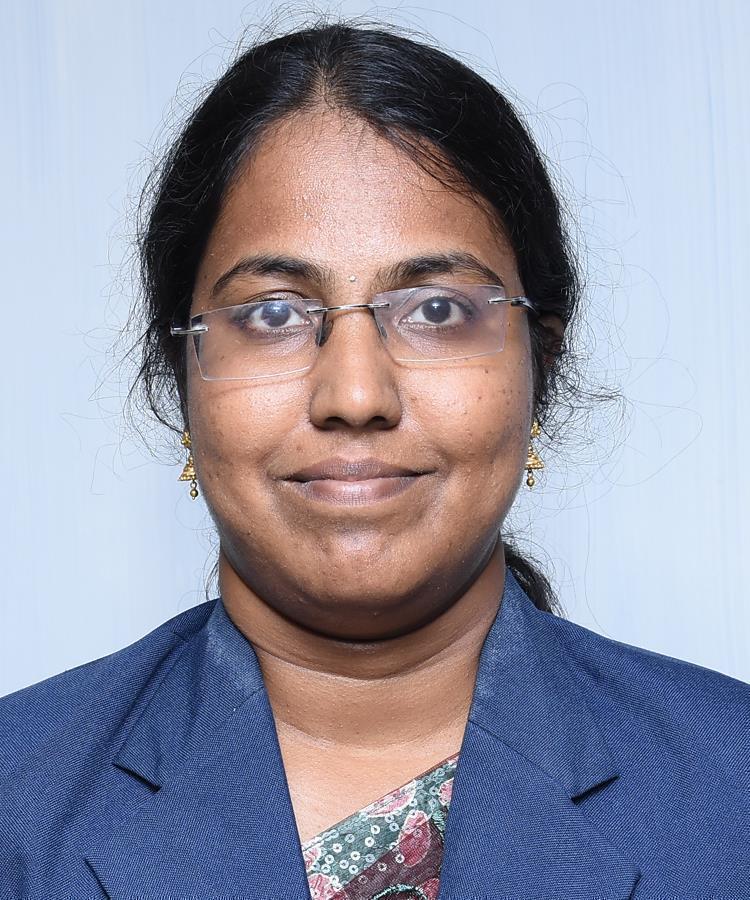
Ms.M.Shalini
Assistant Professor
Know More
Ms.S.Shanthini
Assistant Professor
Know More
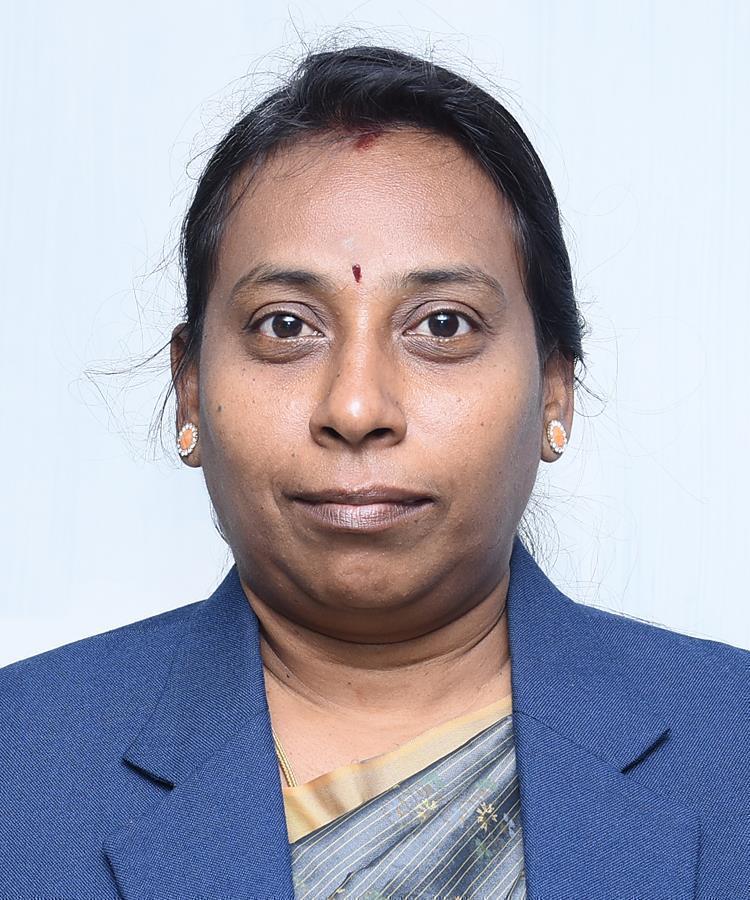
Ms.K.Sudha
Assistant Professor
Know More
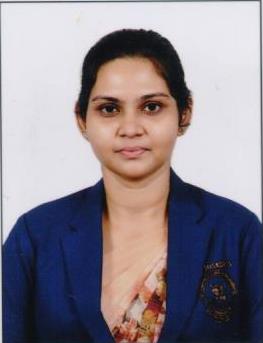
Ms.D.Saranya
Assistant Professor
Know More
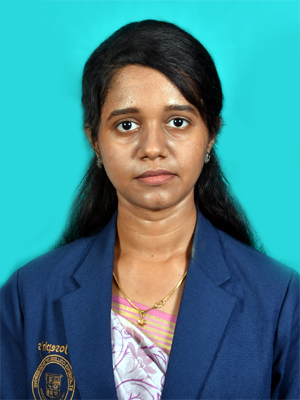
Ms.S.Raghavi
Assistant Professor
Know More
Ms.T.Jenitha
Assistant Professor
Know More
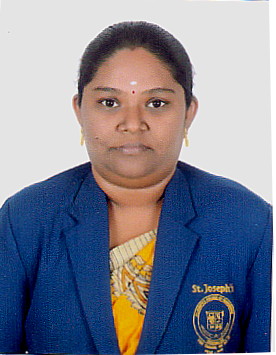
Ms.K.Narmatha
Assistant Professor
Know More
Ms.P.Jayabharathi
Assistant Professor
Know More
Ms.L.Reeba Rose
Assistant Professor
Know More
Ms.M.R.Archana Jenis
Assistant Professor
Know More
Ms.S.Lakshmi
Assistant Professor
Know More
MrS.Niresh Kumar
Assistant Professor
Know More
Mr.K.Rajkumar
Assistant Professor
Know More
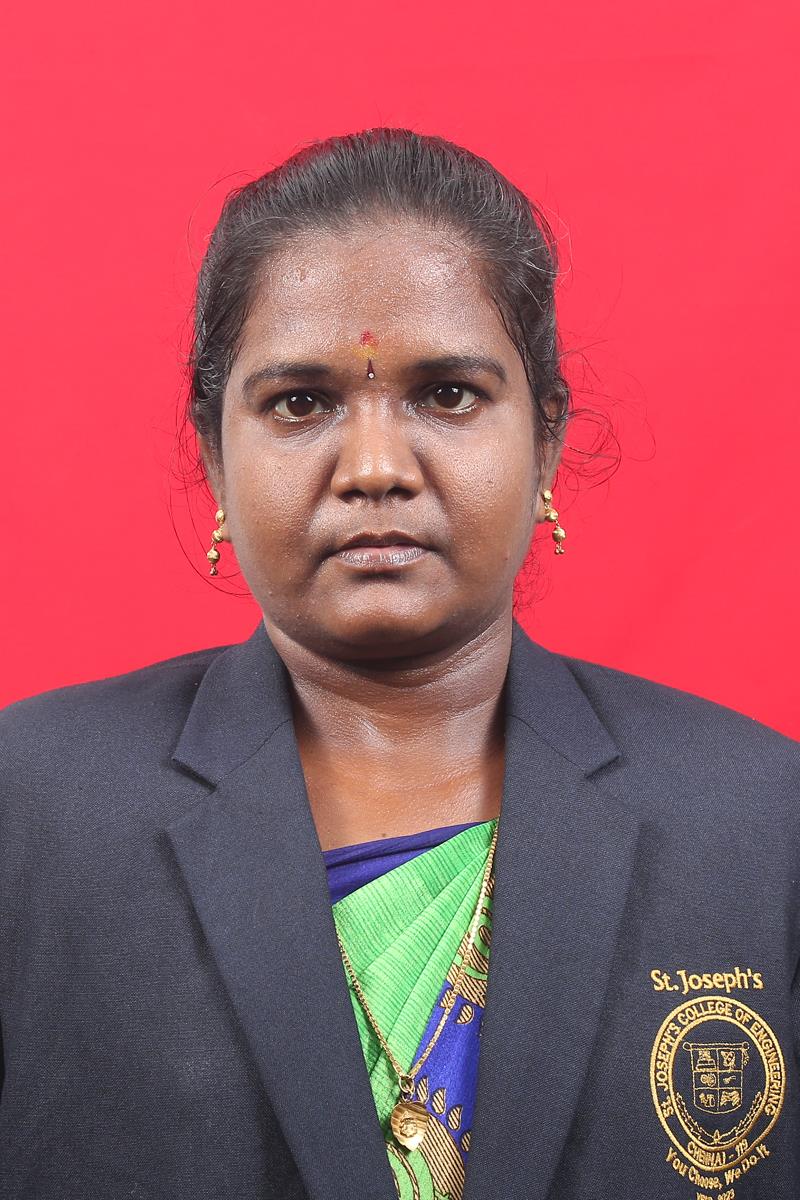
Ms.A.Nithya
Assistant Professor
Know More
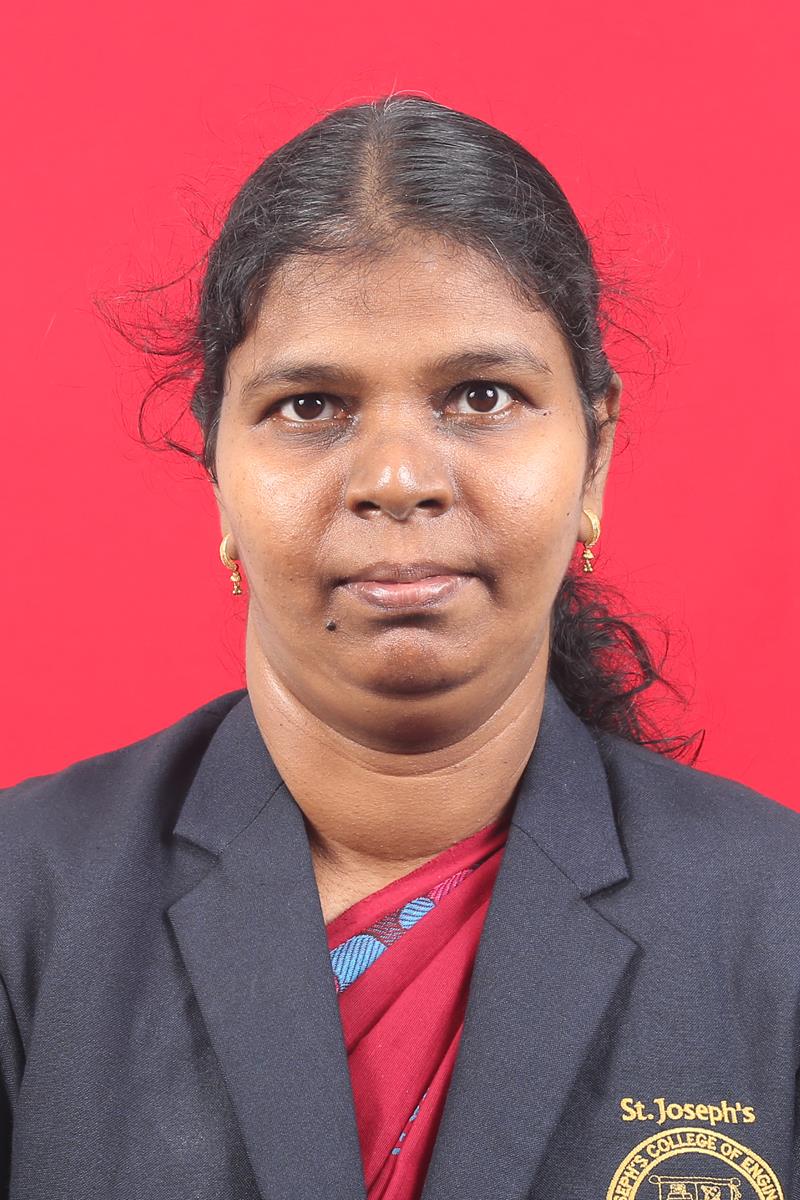
Ms.R.M.Shiny
Assistant Professor
Know More
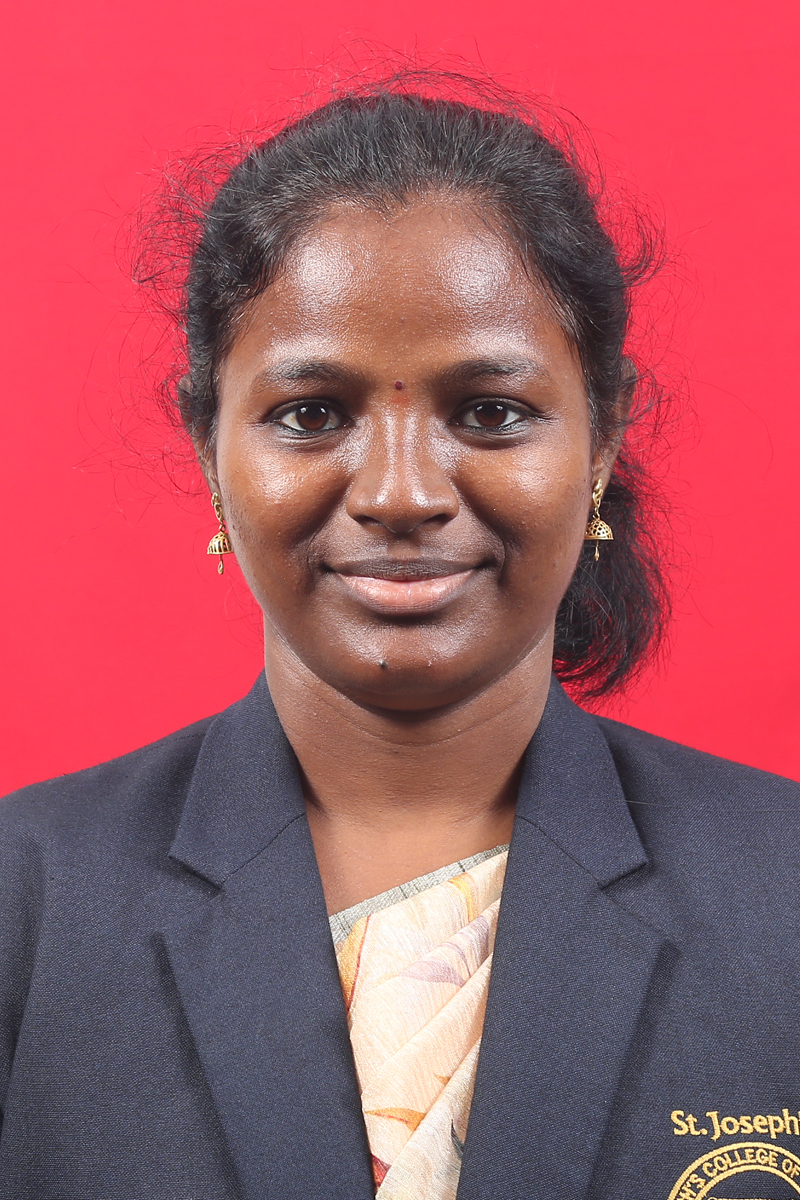
Ms.S.Manochithra
Assistant Professor
Know More
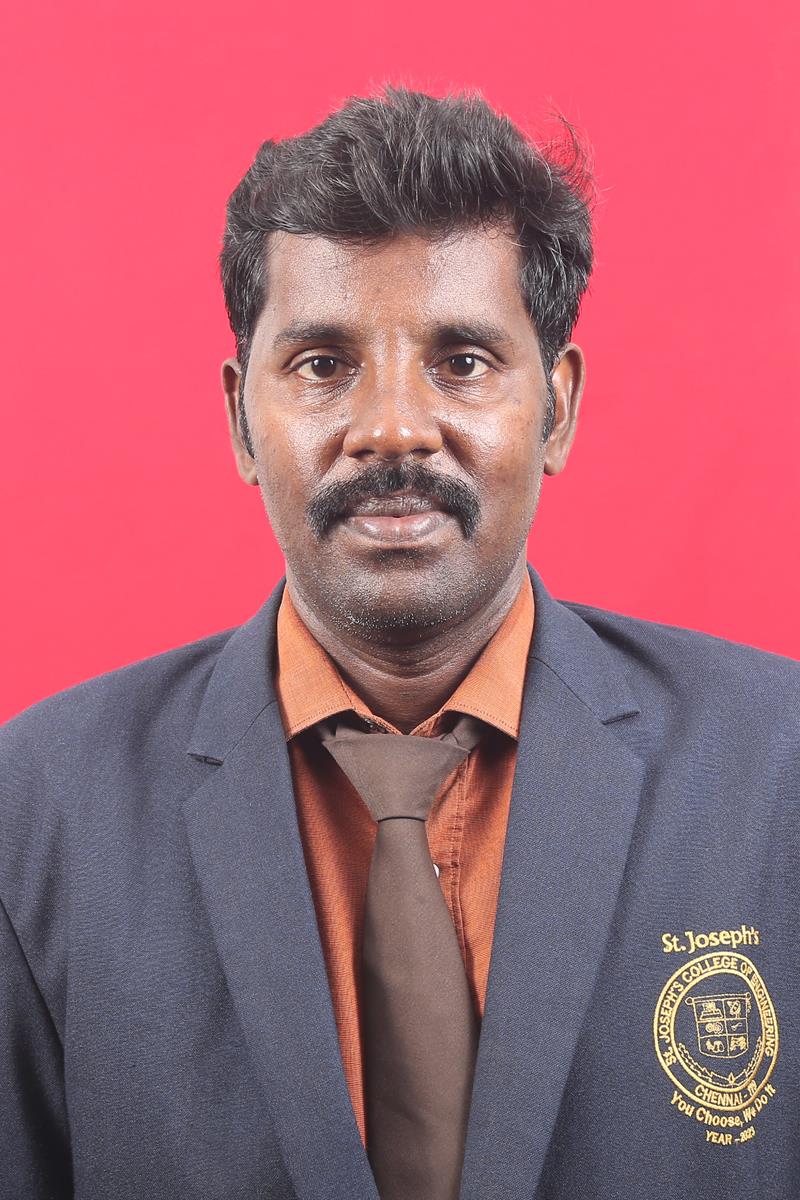
Mr.R.Alexander
Assistant Professor
Know More
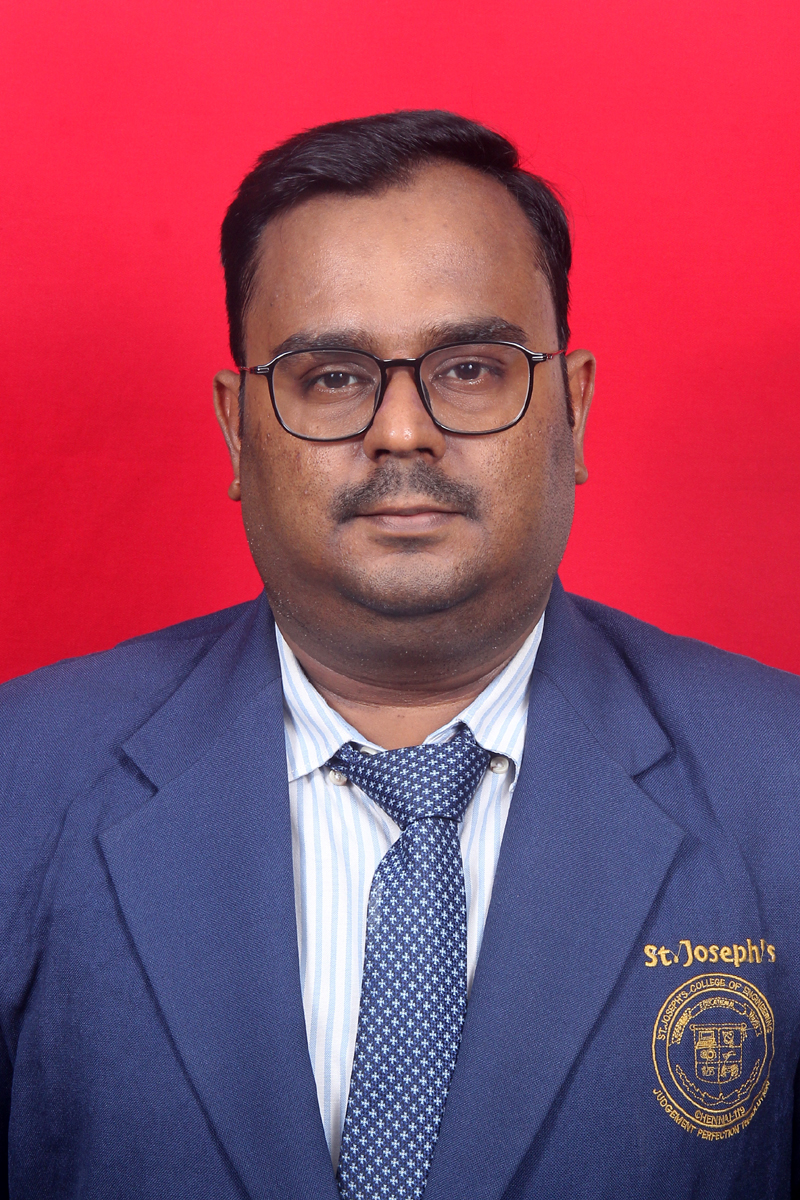
Mr.K.Swaminathan
Assistant Professor
Know More
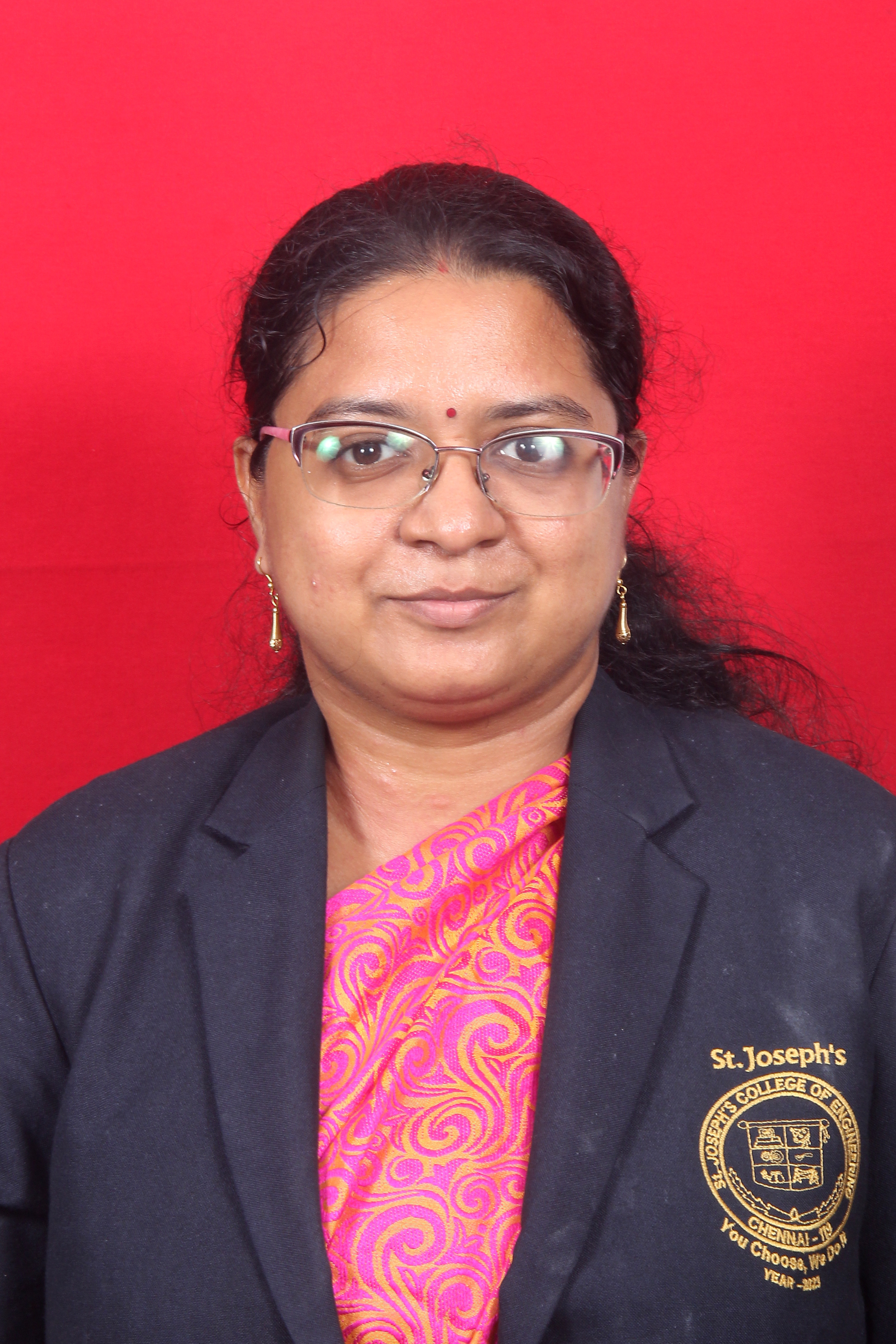
Ms.L.Steffina Morin
Assistant Professor
Know More
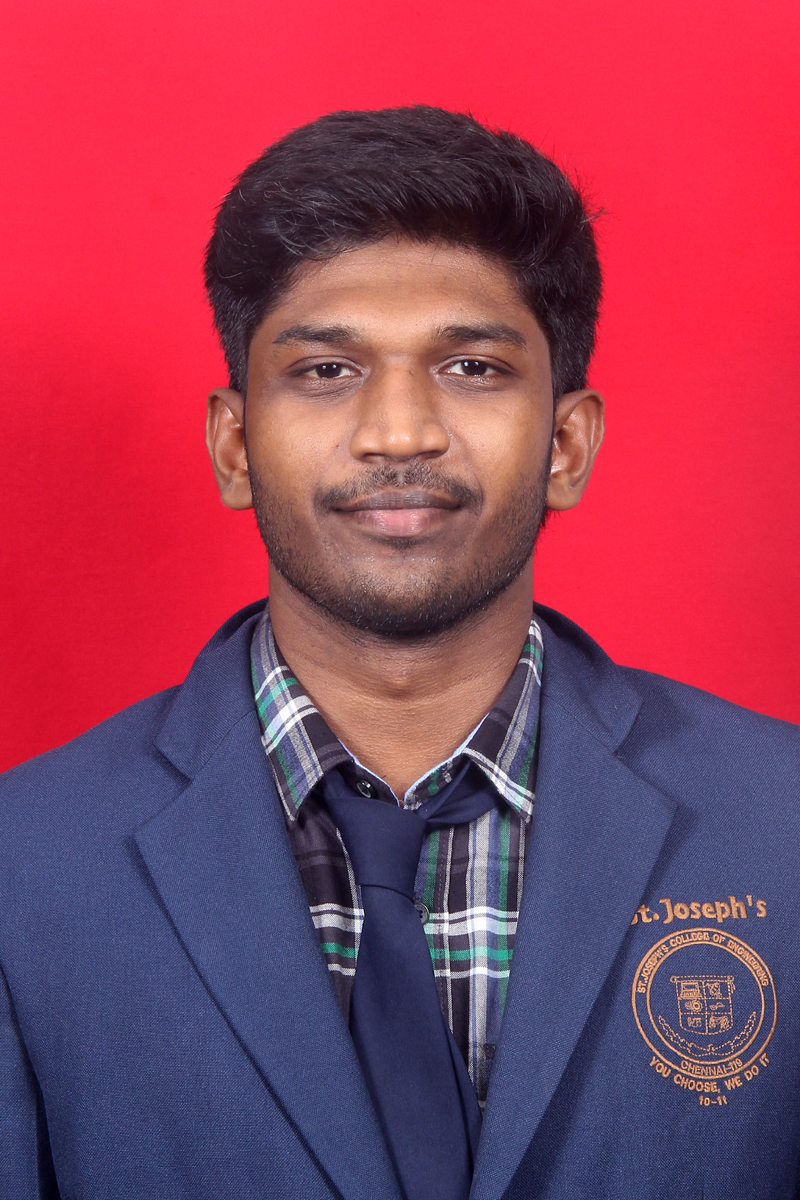
Mr.B.Blessed Sam
Assistant Professor
Know More
Ms.P.Uma Maheswari
Assistant Professor
Know More
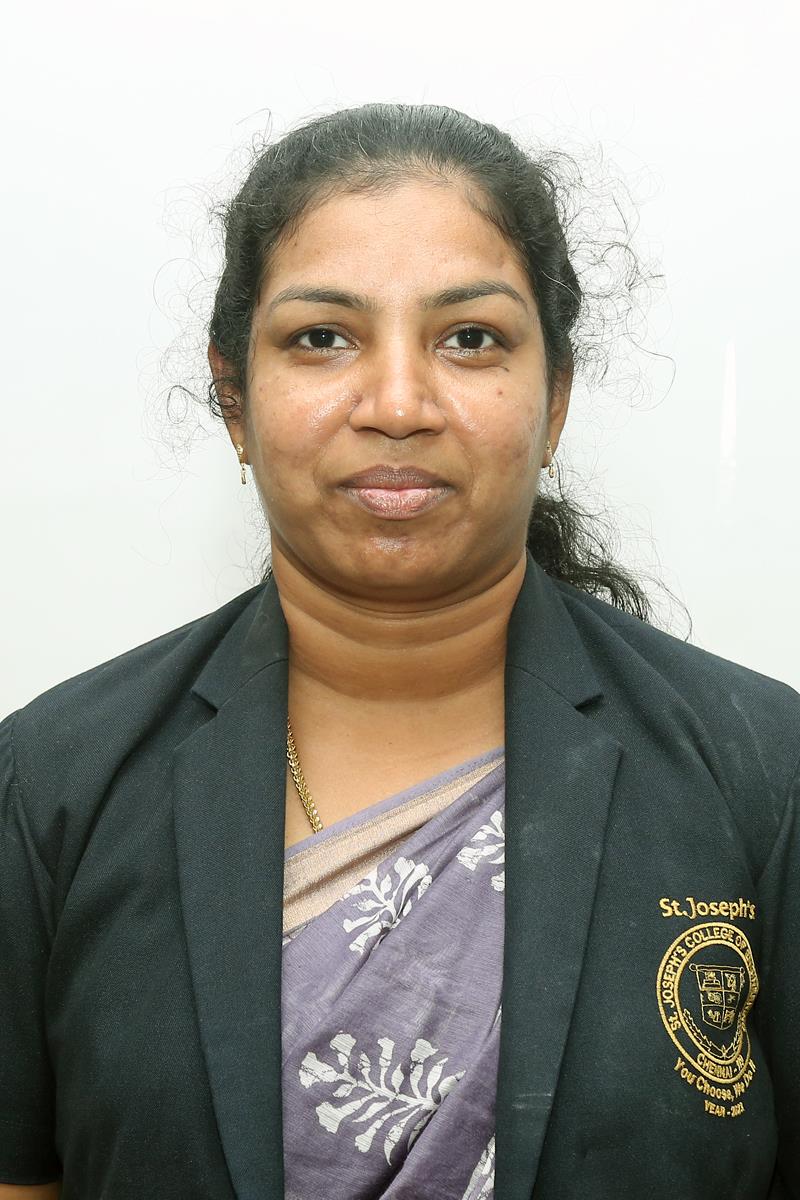
Ms.R.P.Shyni Vinse
Assistant Professor
Know More
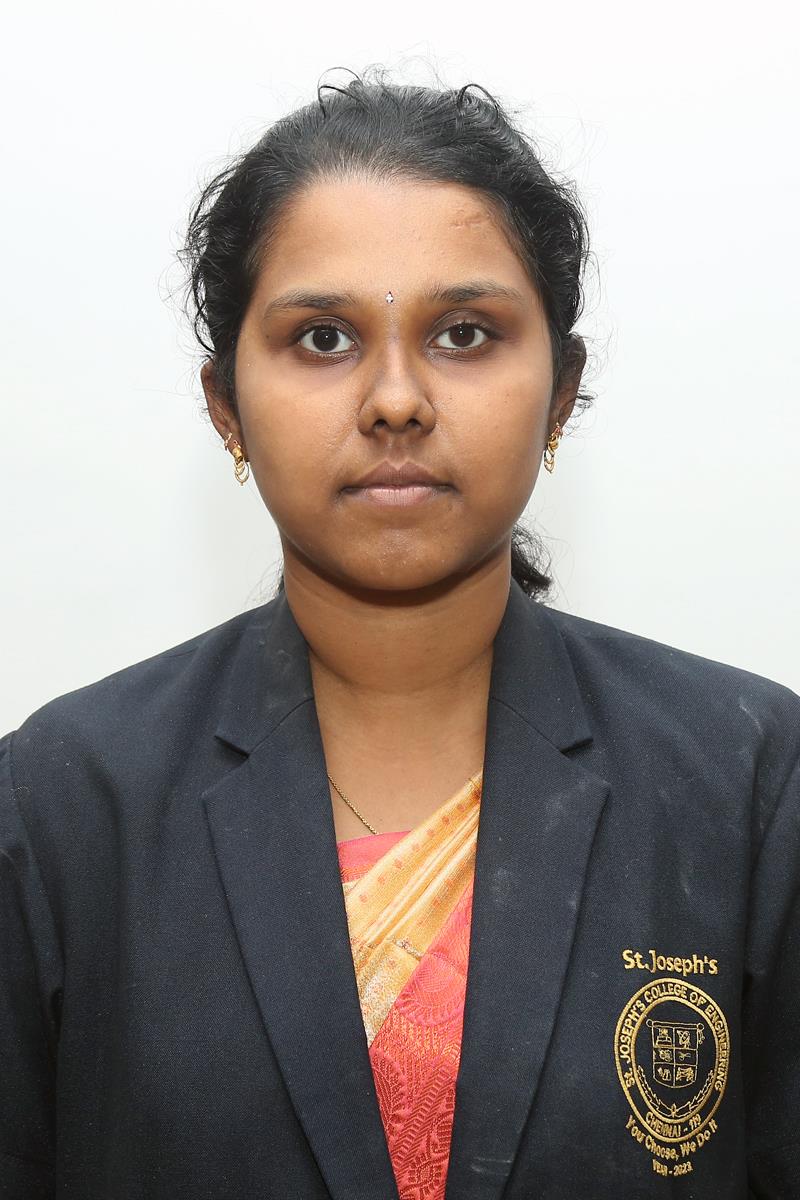
Ms.L.Sowmiya
Assistant Professor
Know More

Ms.C.Illakiyavarshini
Assistant Professor
Know More

Ms.R.Nivedha
Assistant Professor
Know More

Ms.G.M Jeevapriya
Assistant Professor
Know More

Ms.K.Suruthika
Assistant Professor
Know More

Ms.J.Mary Angeline
Assistant Professor
Know More

Ms.R.Kalaivani
Assistant Professor
Know More

Ms.Julie Sharine G
Assistant Professor
Know More
Home
Courses Offered:
B.E Computer Science and Engineering -Intake of 300
M.E Computer Science and Engineering - Intake of 18
M.Tech Computer Science and Engineering - Integrated(5 years) - Intake of 60
About
There are 38 well qualified and dedicated faculties with 10 of them holding Doctoral degree from various reputed Universities adds highlight to our department. Our faculty members besides teaching are involved in many activities like continuing education, technical consultancy, research & development, coordinating professional bodies such as IEEE-CIS chapter etc..,
Vision
The Department of Computer Science and Engineering believes in providing quality education to students who will excel in design and development of hardware and software integrated devices through continuous learning and research activities, ethically meeting the social needs.
Mission
Excellence:Achieve academic excellence through innovative teaching and continuous improvement thereby promoting research and development in the field of Computer Science and Engineering.
Adaptability:Inculcate team work, ethical practices and build necessary skill set in students through career development training programmes to help them adapt to the ever changing market demands.
Service: Enrich students with moral values, discipline and high integrity to serve the society and work towards its betterment.
Program Educational Objectives (PEO)
-
Profession: Graduates excel in computer technology in order to pursue higher education and research, or have a successful career in industries or as entrepreneurs.
Technophile: Graduates will have the ability and attitude to adapt emerging technological changes in the field of Computer Science and Engineering.
Team Player:Possess an ability to collaborate as a team member and team leader to affect technical solutions for computing systems, providing improved function and outcomes.
Program Outcomes (POs)
-
Engineering knowledge: Apply the knowledge of mathematics, science, engineering fundamentals, and an engineering specialization to the solution of complex engineering problems.
Problem analysis: Identify, formulate, review research literature, and analyze complex engineering problems reaching substantiated conclusions using first principles of mathematics, natural sciences, and engineering sciences.
Design/development of solutions: Design solutions for complex engineering problems and design system components or processes that meet the specified needs with appropriate consideration for the public health and safety, and the cultural, societal, and environmental considerations.
Conduct investigations of complex problems: Use research-based knowledge and research methods including design of experiments, analysis and interpretation of data, and synthesis of the information to provide valid conclusions.
Modern tool usage: Create, select, and apply appropriate techniques, resources, and modern engineering and IT tools including prediction and modeling to complex engineering activities with an understanding of the limitations.
The engineer and society: Apply reasoning informed by the contextual knowledge to assess societal, health, safety, legal and cultural issues and the consequent responsibilities relevant to the professional engineering practice.
Environment and sustainability: Understand the impact of the professional engineering solutions in societal and environmental contexts, and demonstrate the knowledge of, and need for sustainable development.
Ethics: Apply ethical principles and commit to professional ethics and responsibilities and norms of the engineering practice.
Individual and team work: Function effectively as an individual, and as a member or leader in diverse teams, and in multidisciplinary settings.
Communication: Communicate effectively on complex engineering activities with the engineering community and with society at large, such as, being able to comprehend and write effective reports and design documentation, make effective presentations, and give and receive clear instructions.
Project management and finance: Demonstrate knowledge and understanding of the engineering and management principles and apply these to one’s own work, as a member and leader in a team, to manage projects and in multidisciplinary environments.
Life-long learning: Recognize the need for, and have the preparation and ability to engage in independent and life-long learning in the broadest context of technological change.
Program Specific Objectives (PSOs)
-
Efficiency: Ability to apply mathematical methodologies and foundational concepts of Computer Science and Engineering to solve computational tasks, model the real world problem using appropriate data structure and algorithm with suitable programming languages.
Potentiality to design: Analyze, design and evaluate a computer based system by applying software engineering principles and practices for developing quality software for scientific and business applications.
Technical expertise: Adapt to modern engineering technologies and thereby build robust, reliable, maintainable, scalable, innovative and efficient computing systems by considering social, environmental, economic, and security constraints.
Students Corner
Placement Achievements
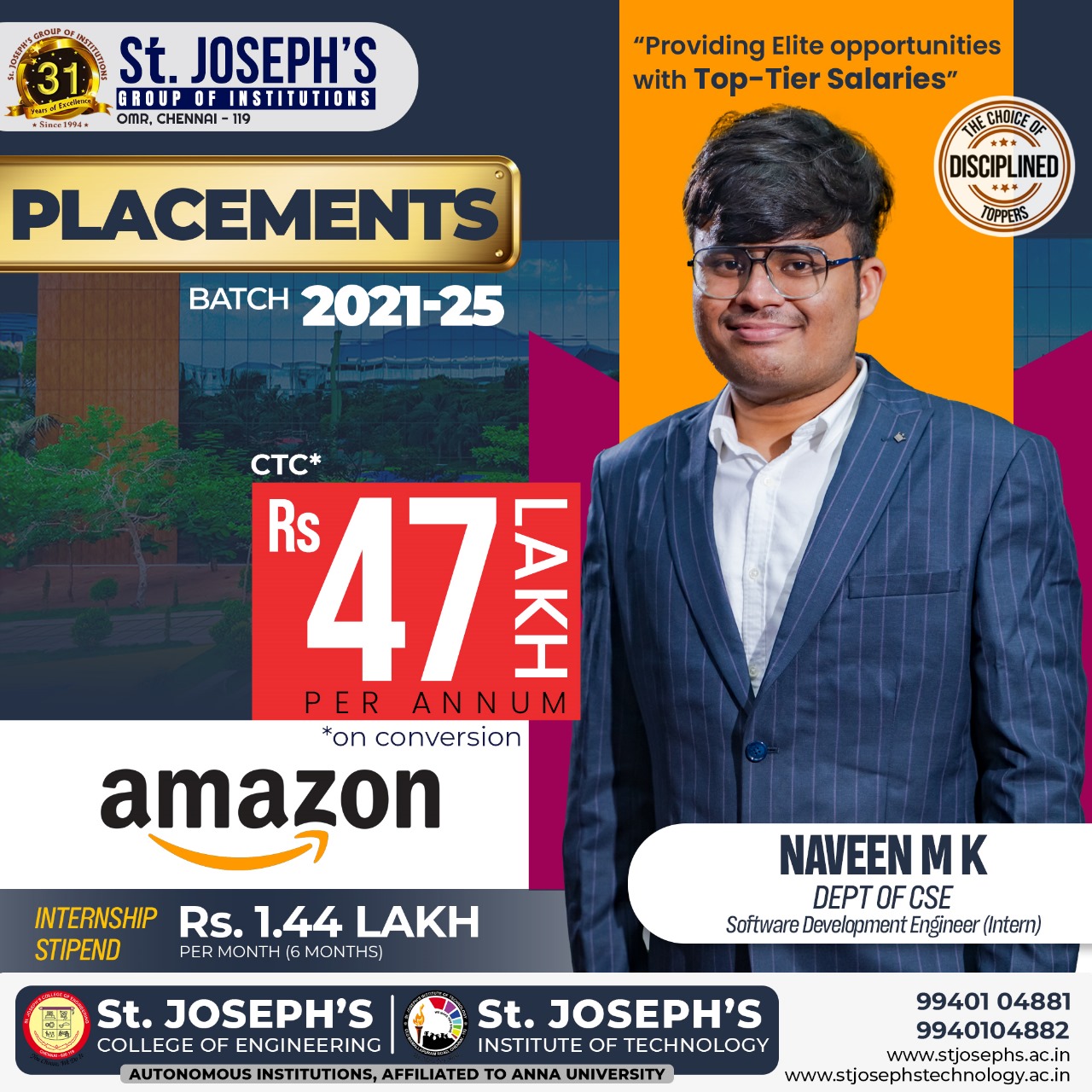
NAVEEN M K
Department of Computer Science and Engineering
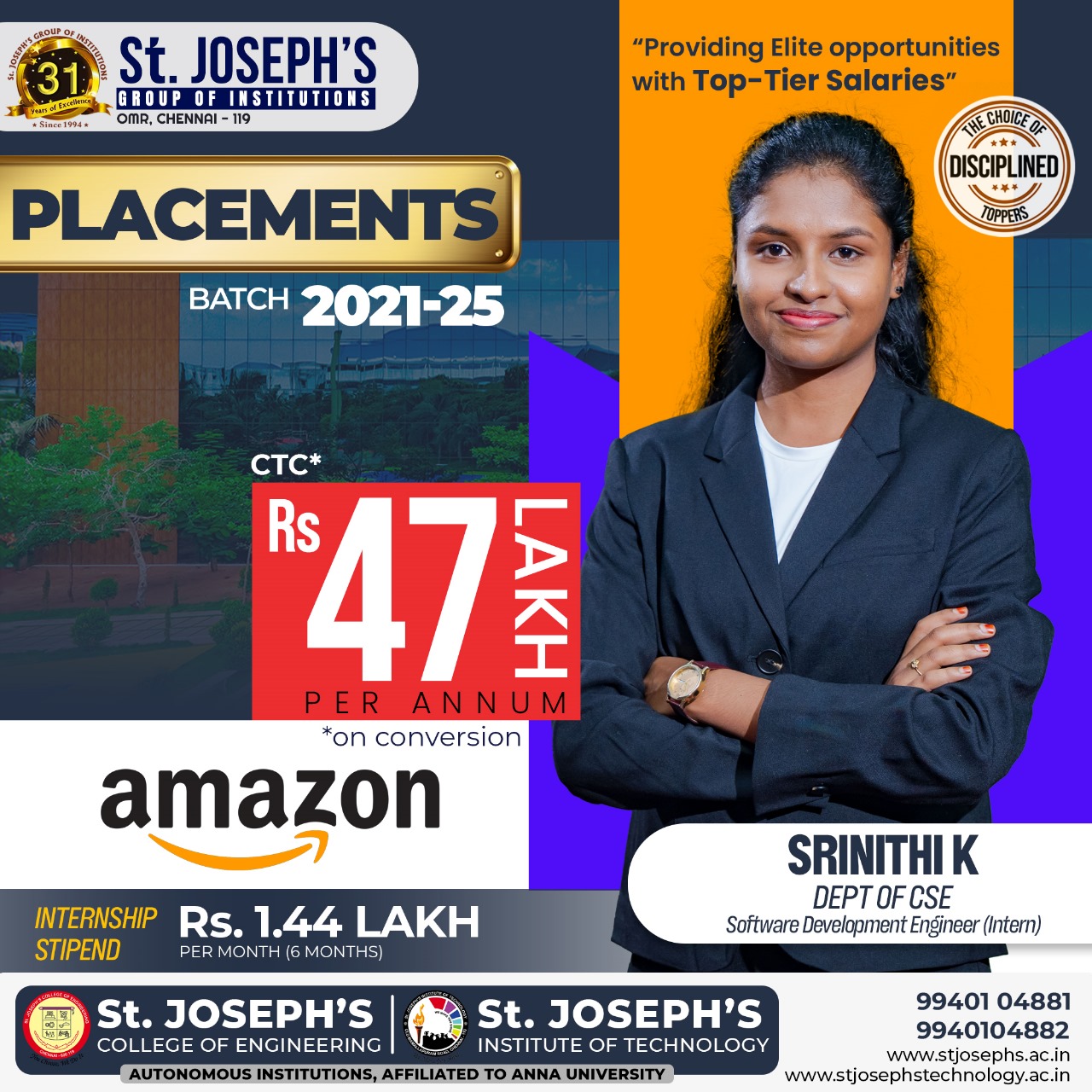
SRINITHI K
Department of Computer Science and Engineering
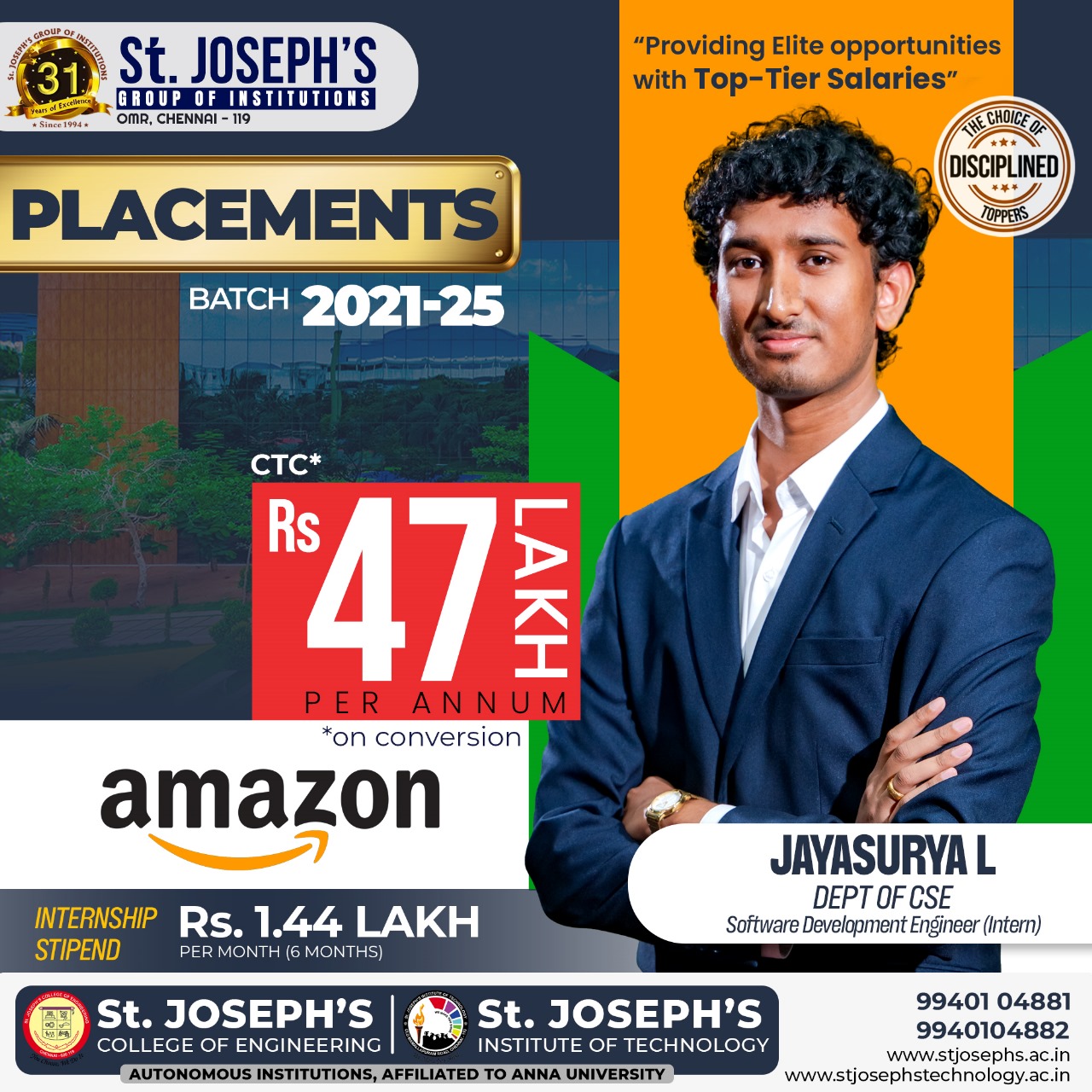
JAYASURIYA L
Department of Computer Science and Engineering
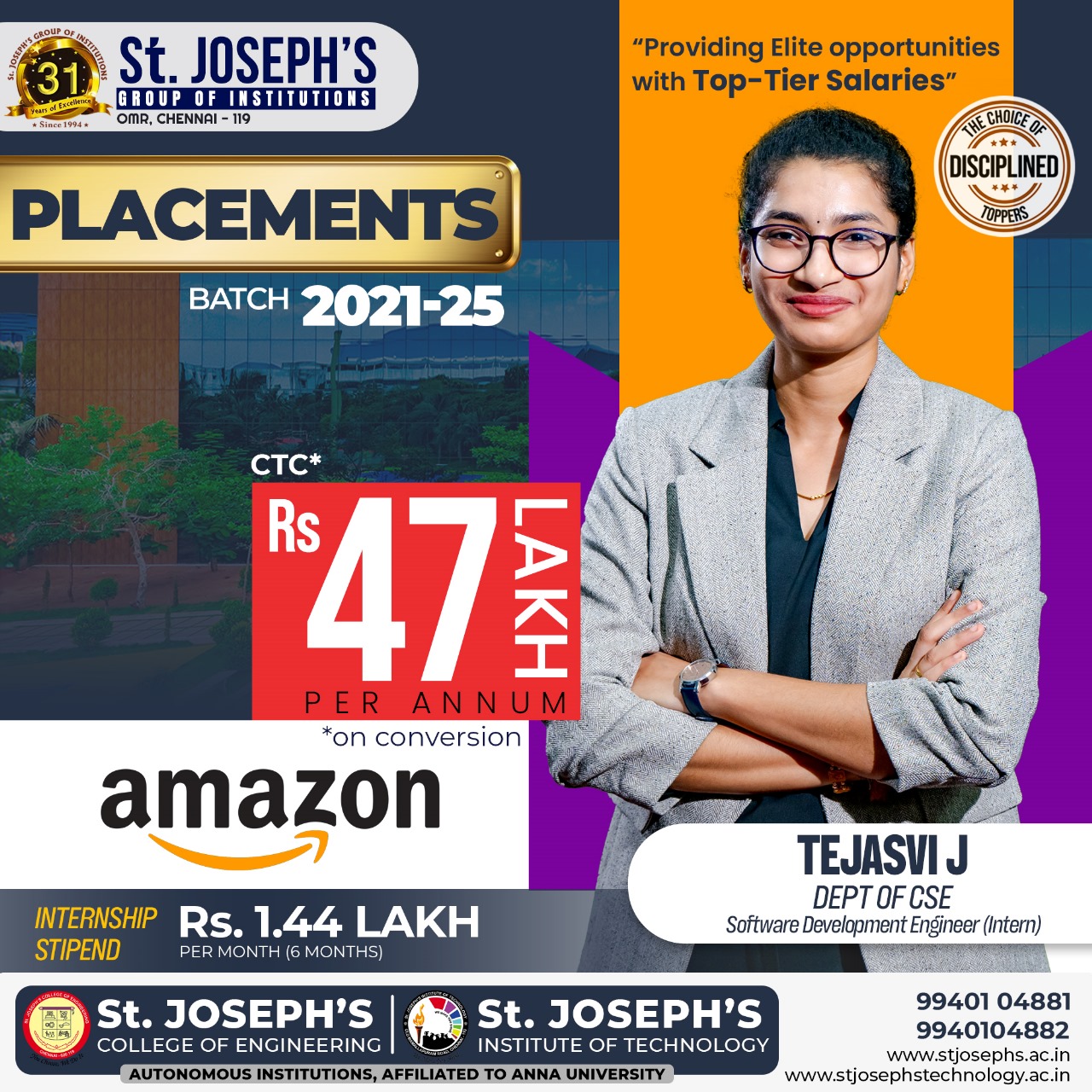
TEJASVI J
Department of Computer Science and Engineering
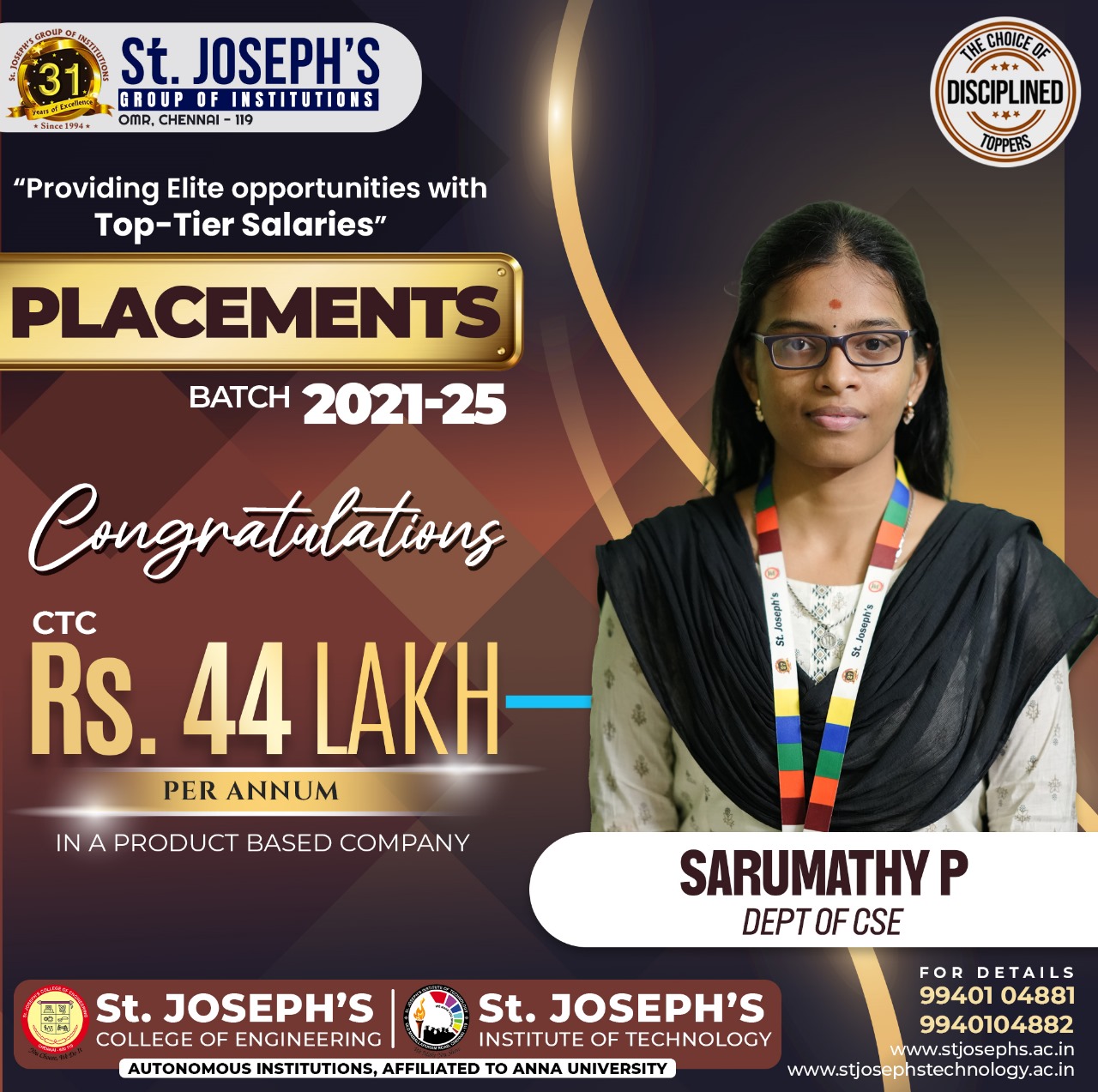
SARUMATHY P
Department of Computer Science and Engineering
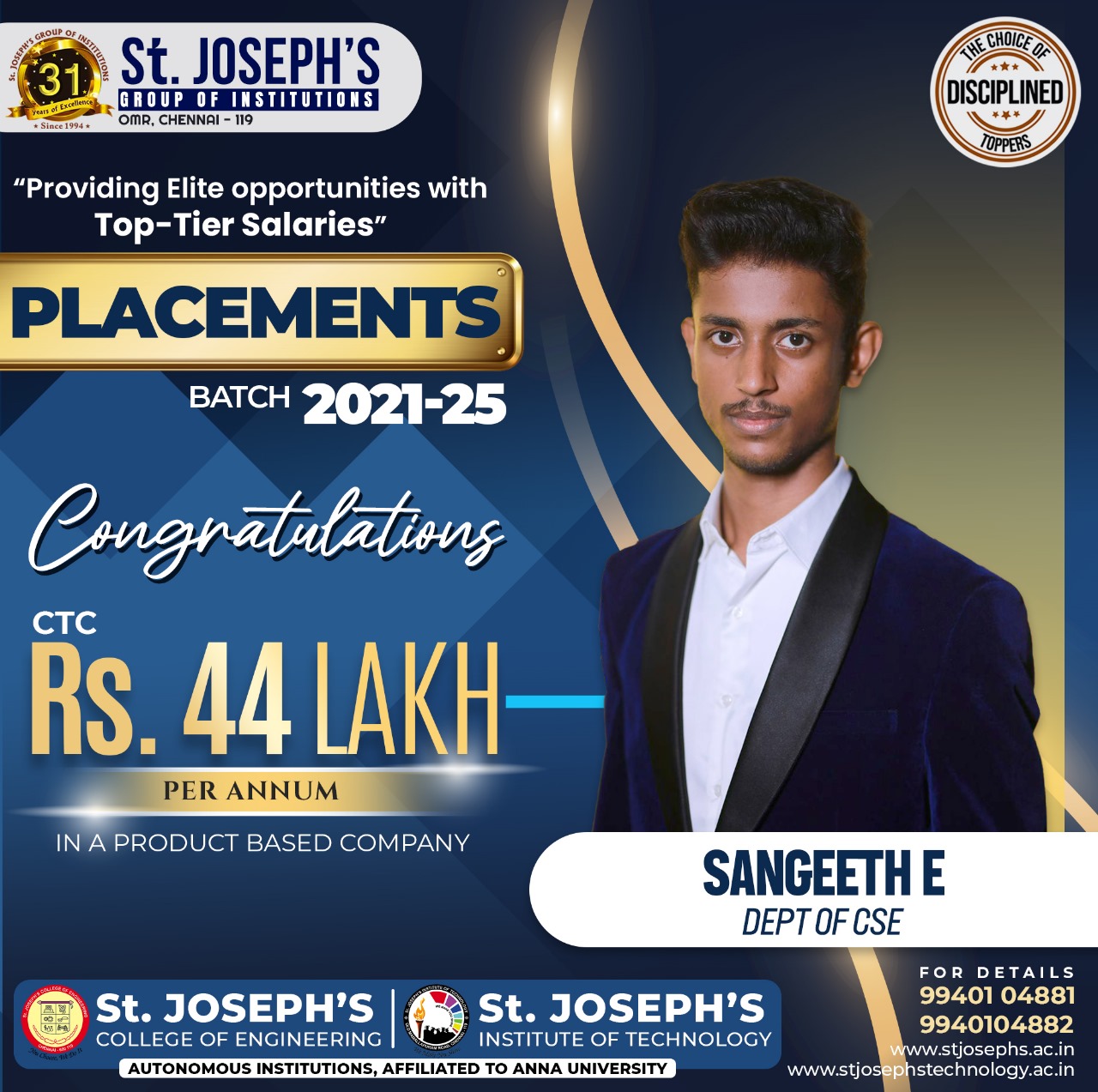
SANGEETH E
Department of Computer Science and Engineering

VIGNESH E
Department of Computer Science and Engineering
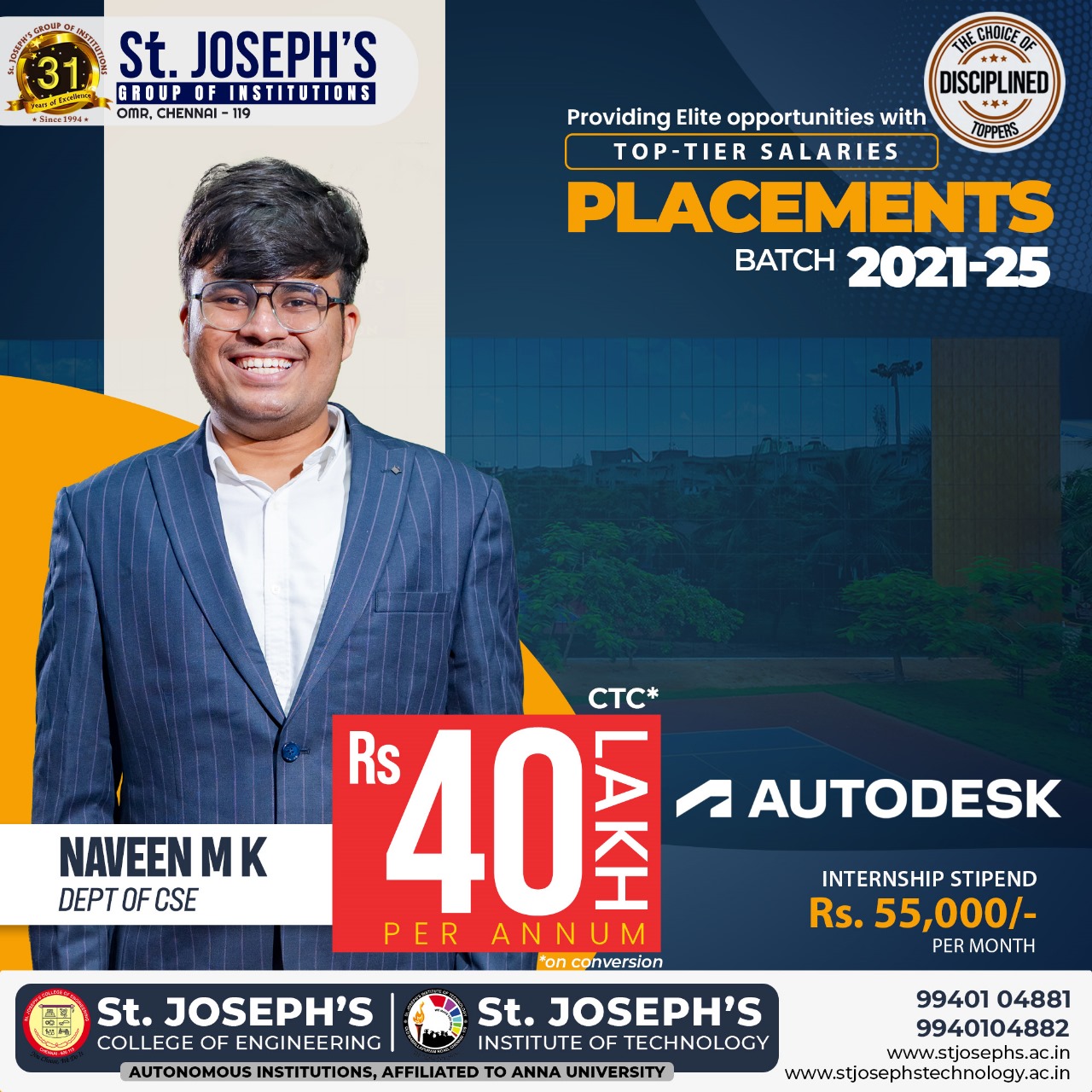
NAVEEN M K
Department of Computer Science and Engineering

HARSHINI T V
Department of Computer Science and Engineering
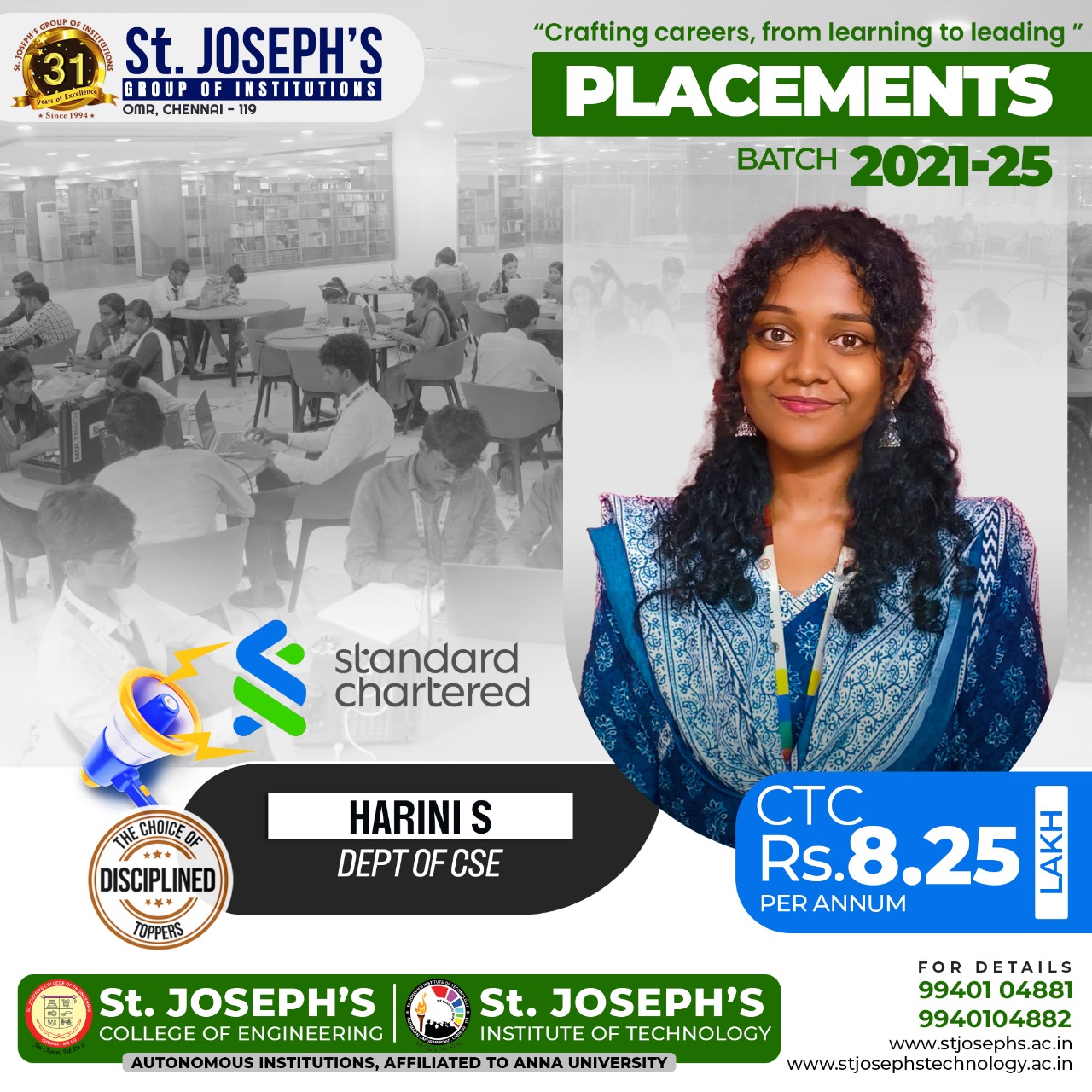
HARINI S
Department of Computer Science and Engineering
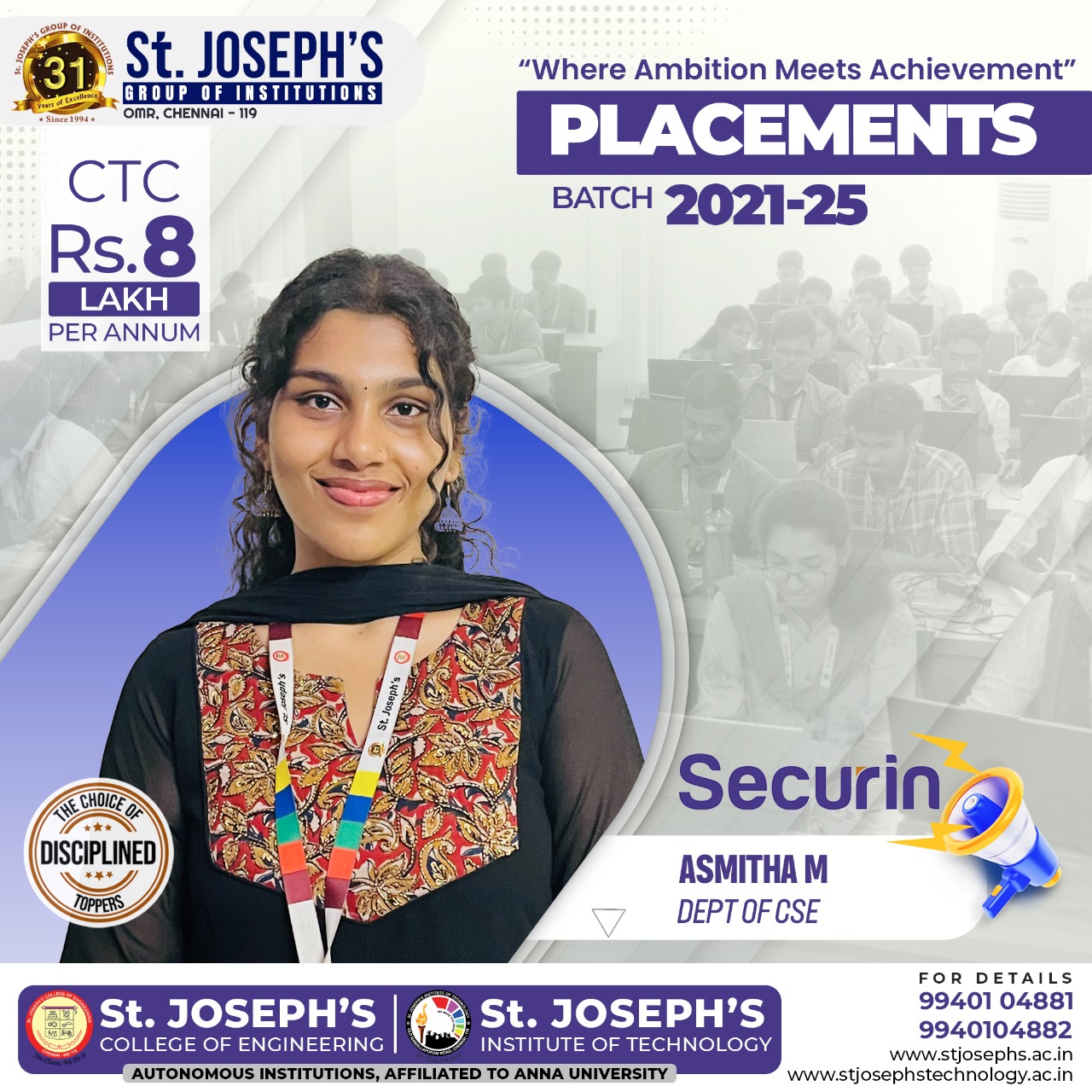
ASMITHA M
Department of Computer Science and Engineering
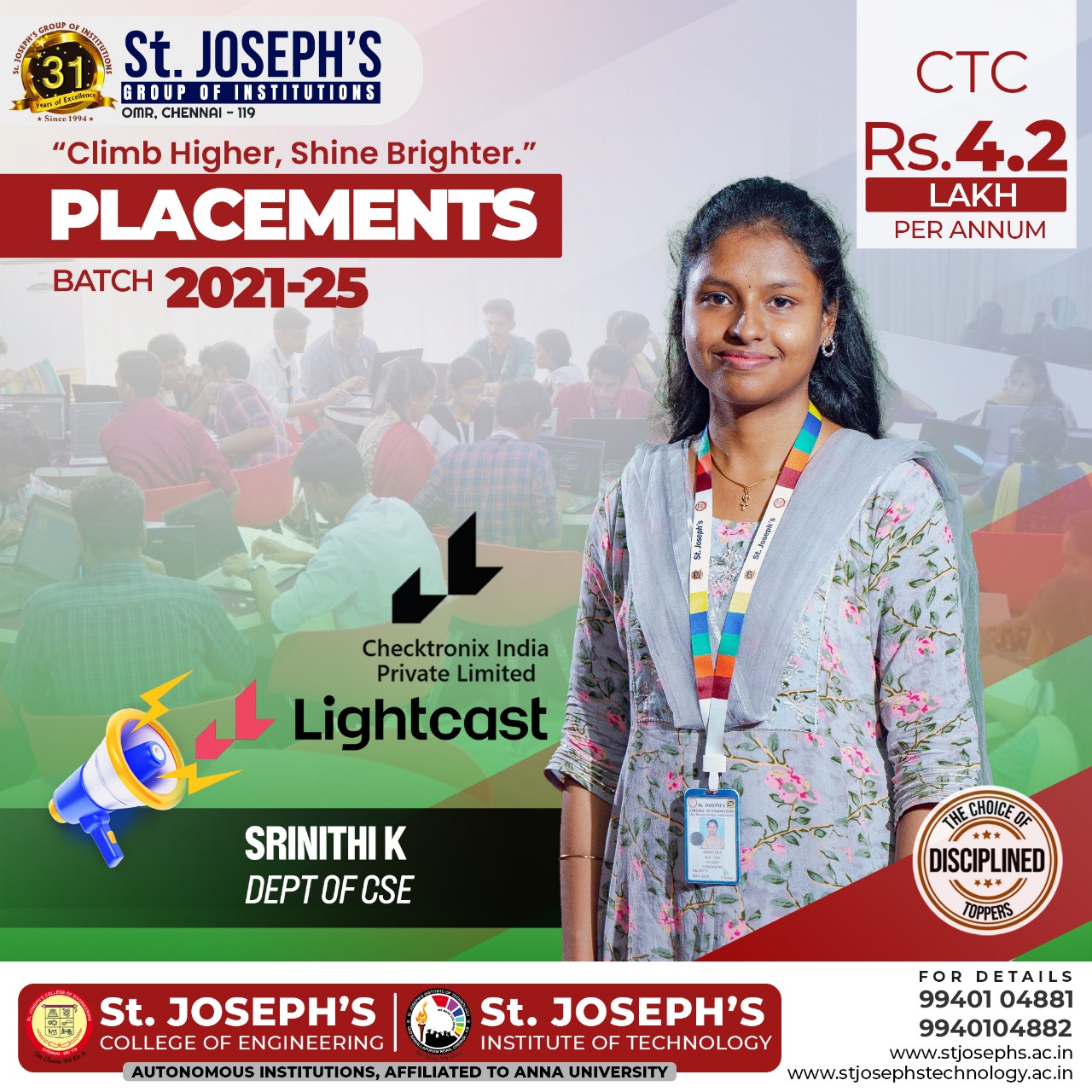
SRINITHI K
Department of Computer Science and Engineering
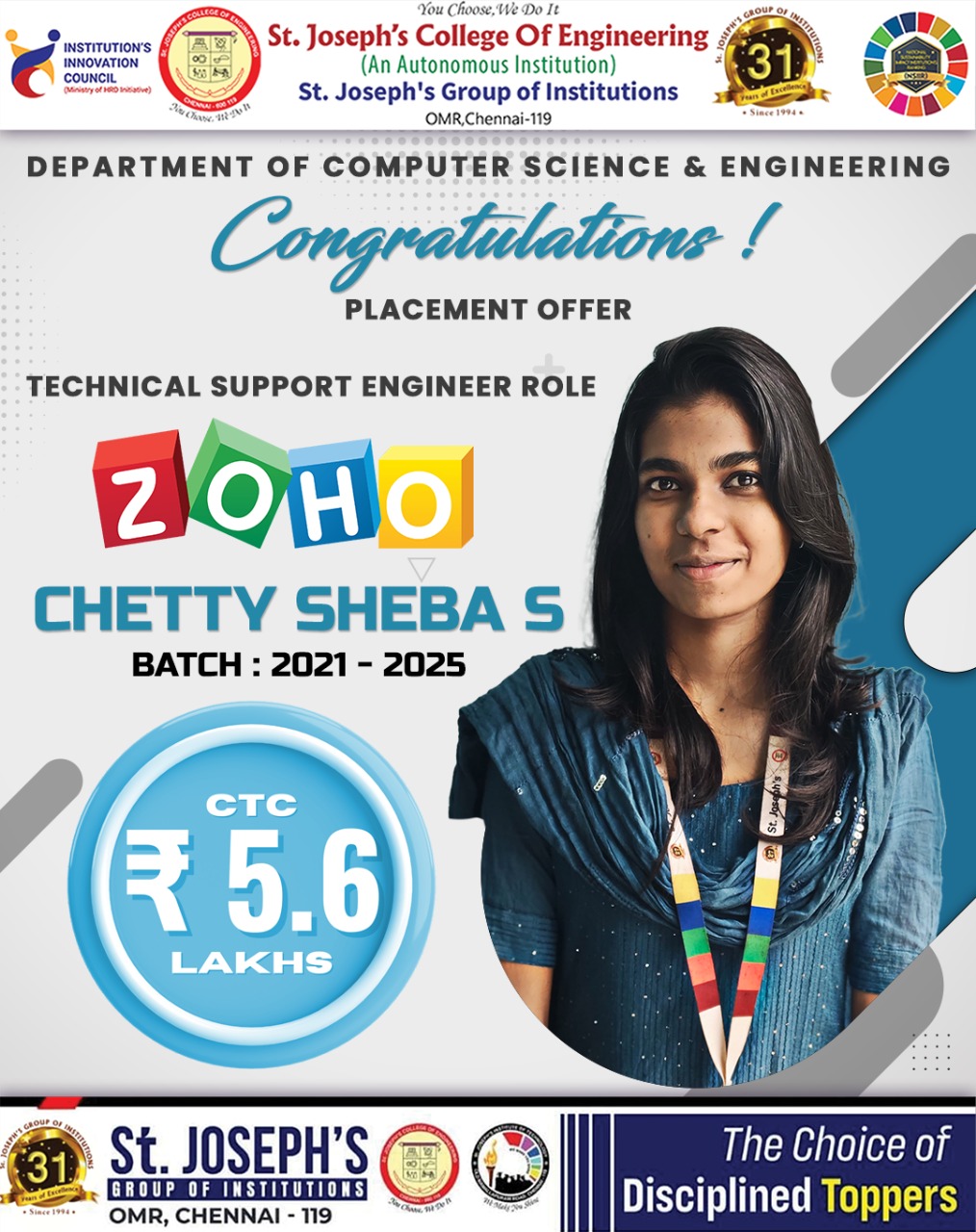
CHETTY SHEBA S
Department of Computer Science and Engineering
Industrial Visit
IIITDM Kancheepuram

II Year - Sec B
Industrial Visit at IIITDM Kancheepuram

II Year - Sec C
Industrial Visit at IIITDM Kancheepuram
Electronics Test and Development Centre (ETDC)

II Year - Sec A & C
Electronics Test and Development Centre (ETDC)
National Institute of Ocean Technology

II Year - Sec B & D
National Institute of Ocean Technology

II Year - Sec B & D
National Institute of Ocean Technology
National Level Technical Symposium
Guest Lecture
Odd Semester (Academic Year - 2024 - 2025)
Even Semester (Academic Year - 2024 - 2025)
Odd Semester (Academic Year - 2023 - 2024)
Even Semester (Academic Year - 2023 - 2024)
Club Activities
Coding and Innovation Software Hackathon Club




Coding Club Winners






Academic Achievements
Wicys 2025 International Conference at Dallas, US
Our student got Best Performing International Chapter Award and also received Grant for $4300 (Rs.3.75 Lakh)
AWS PARTYROCK WINNERS
Our students has won the prize amount of $650.

GOOGLE DEVELOPER GROUPS
Our students has oragnized an group in our college campus.
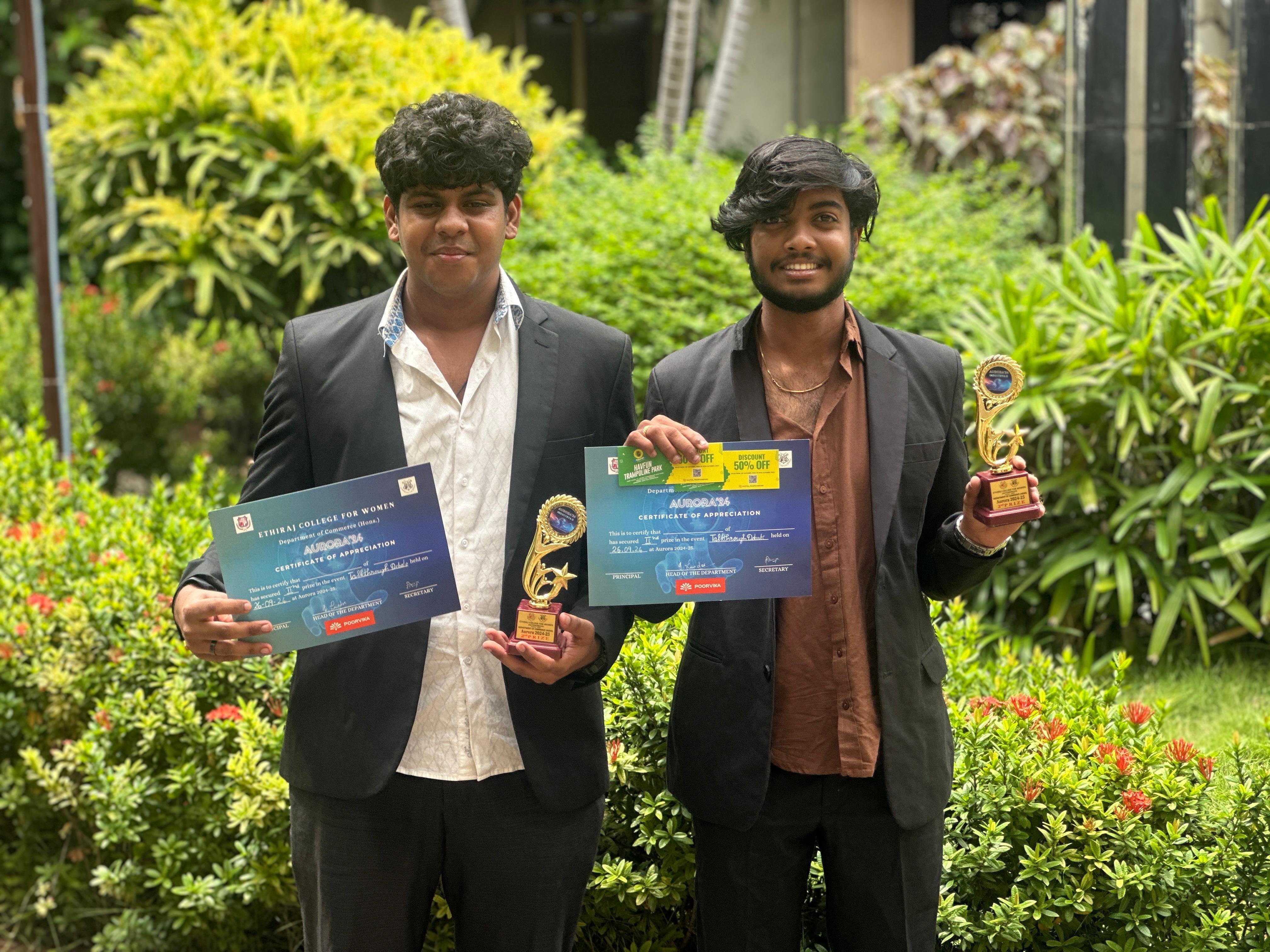
AURORA24
Our students has participated and won II place in ETHIRAJ COLLEGE .
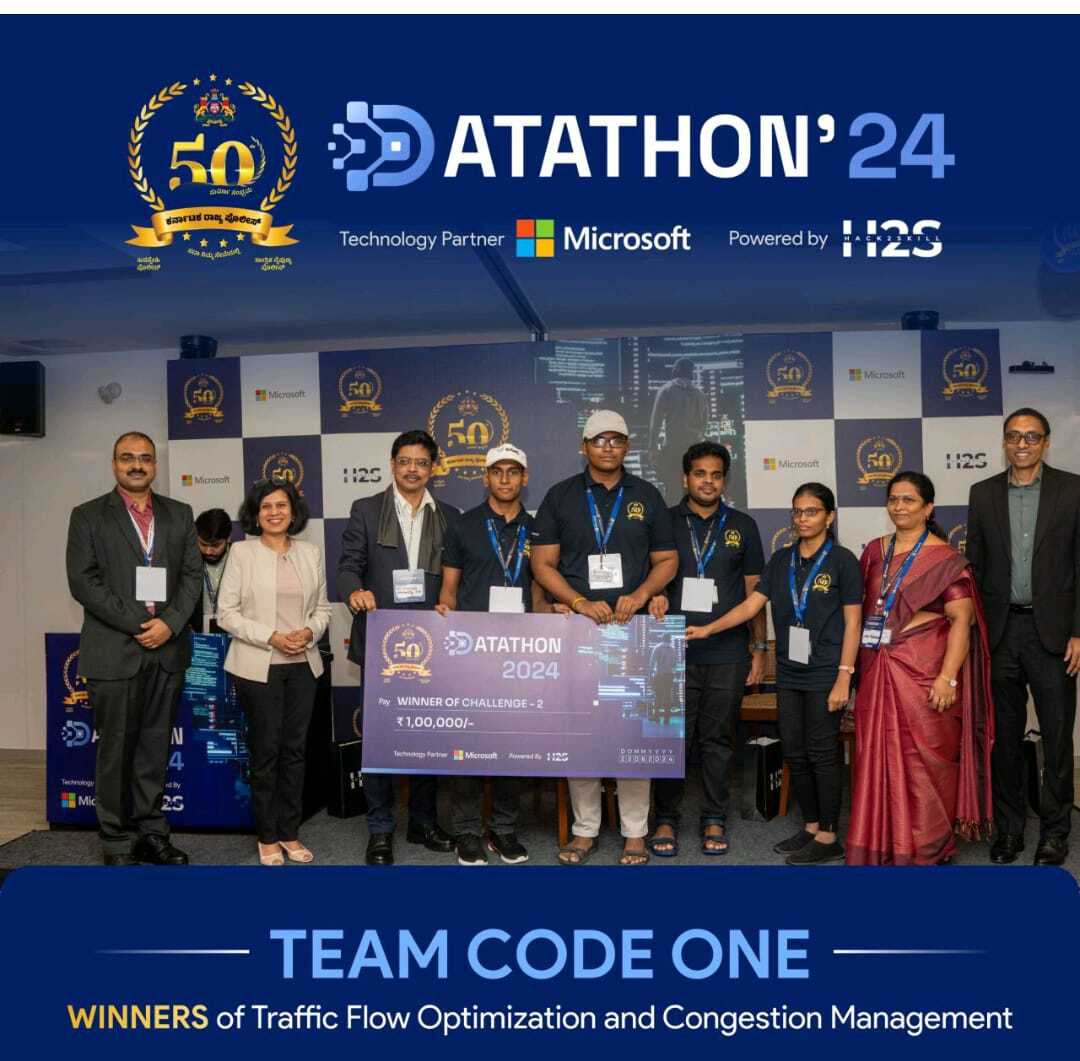
POLICE HACKATHON
Our students has won in Datathon'24 .
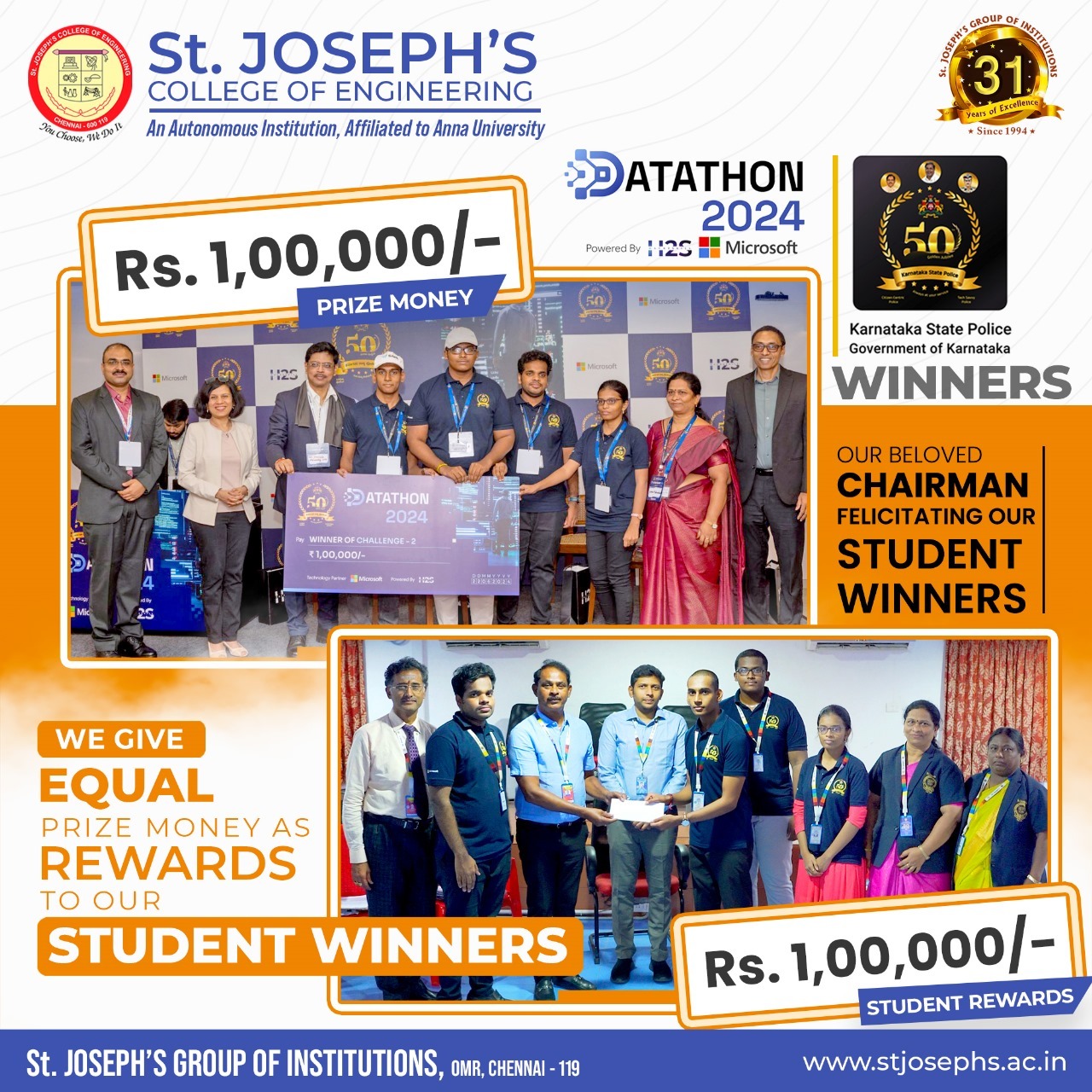
POLICE HACKATHON
Our students has won the prize money of Rs.1,00,000 .
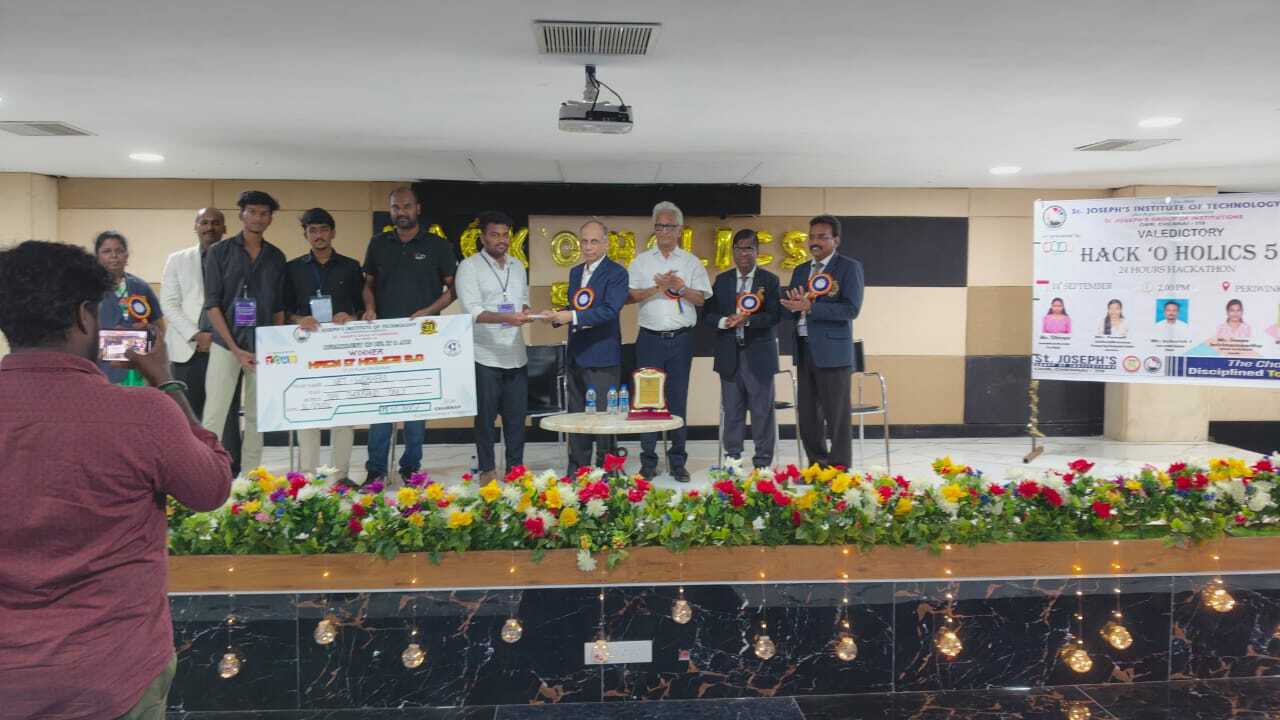
HACK-O-HOLICS
Our students has participated and won III place in intercollege event with cash prize of amount Rs.10,000 .
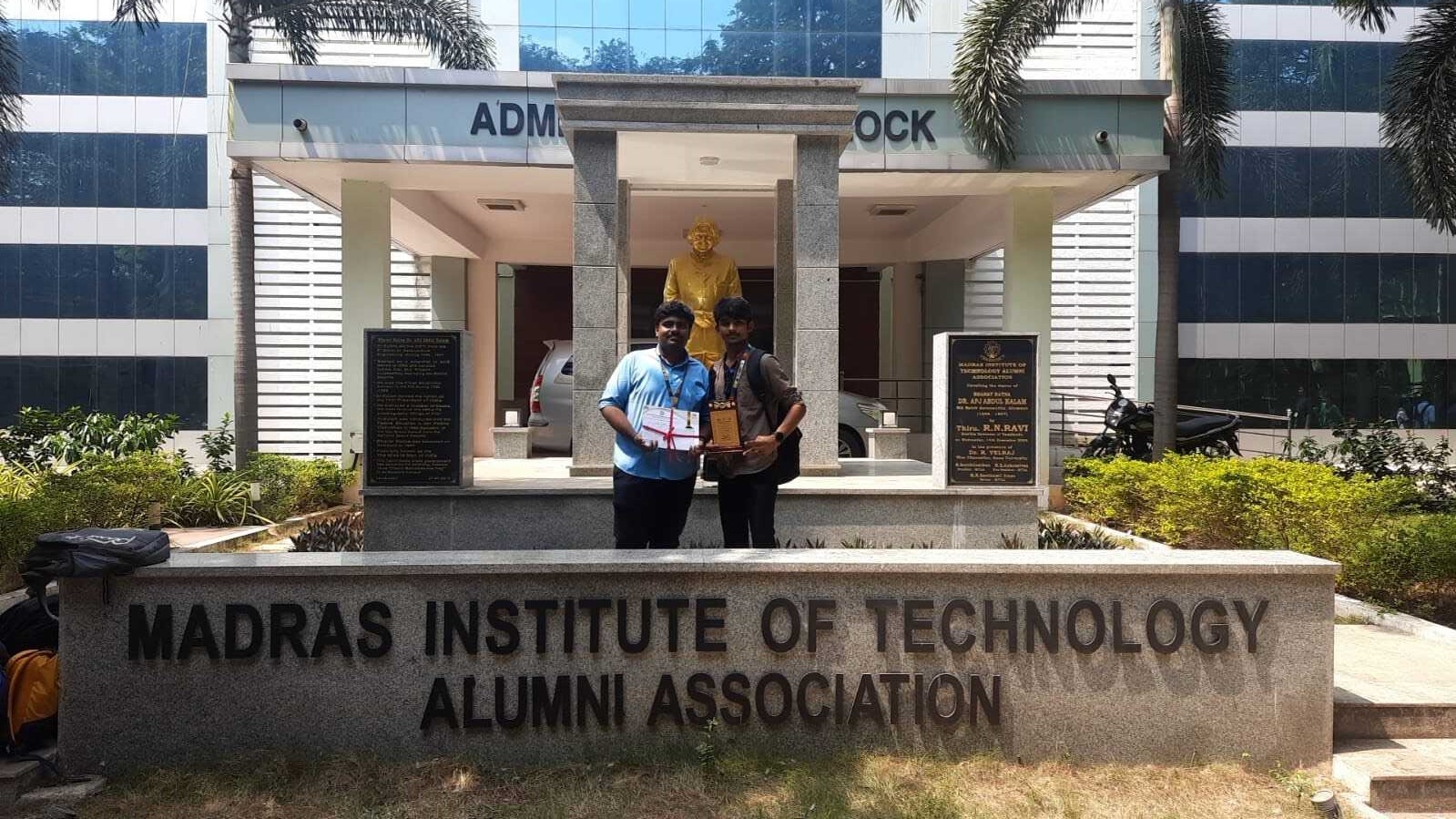
MIT - National level seminar
Our students has participated and won III place in MIT -National level seminar .
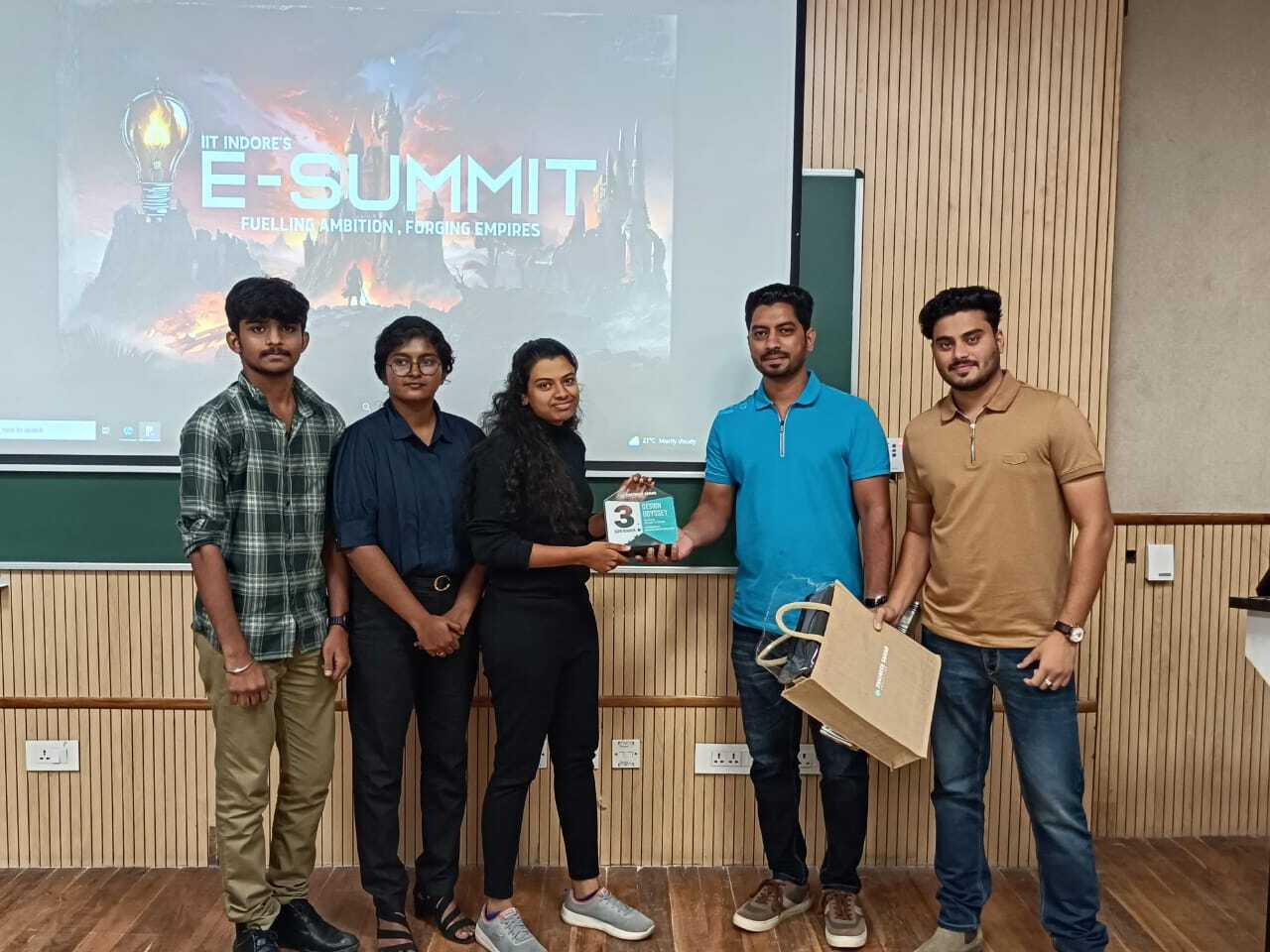
IIT E-Summit
Our students has participated in IIT Indore E-Summit.
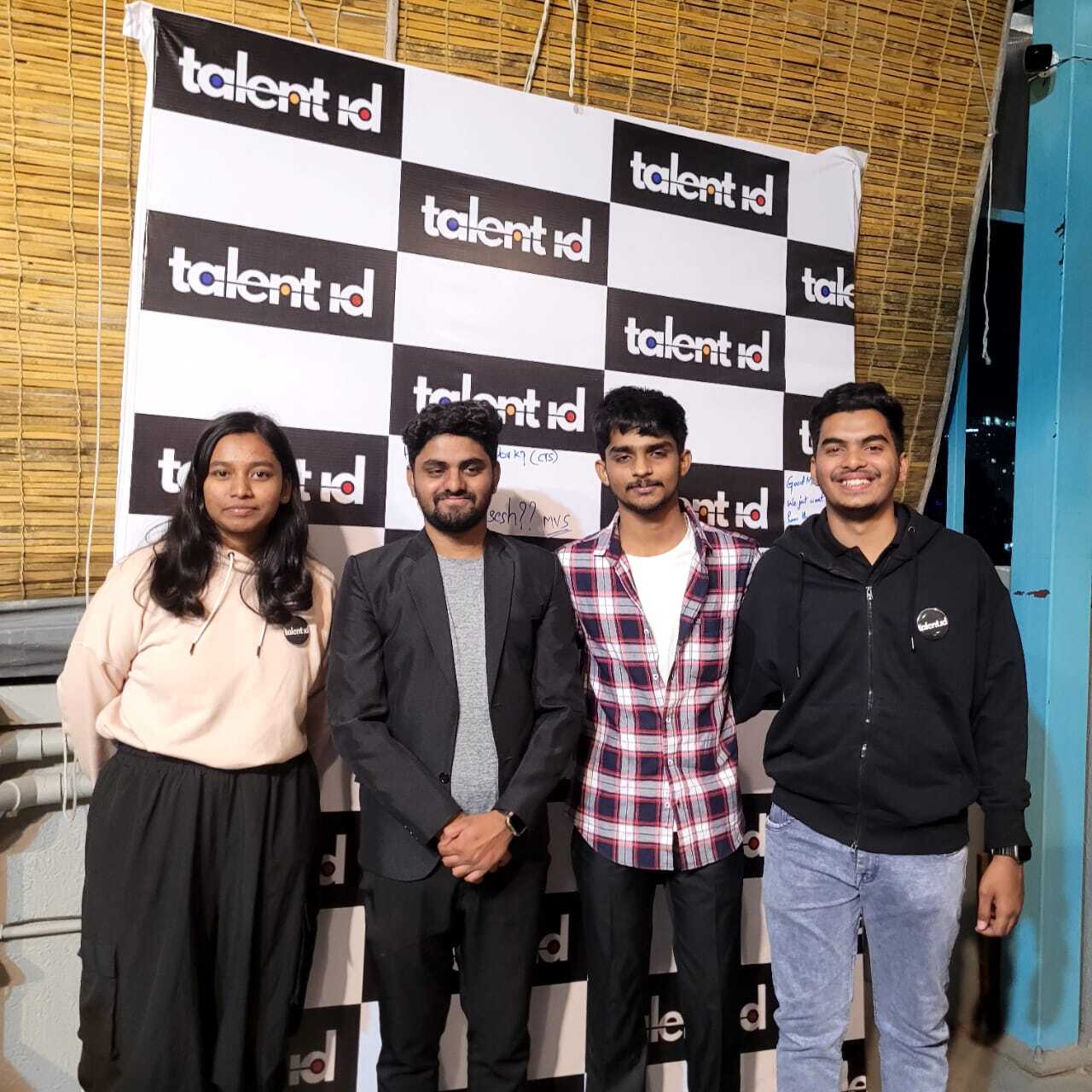
Talent ID
Our students has participated and won in Talent ID .
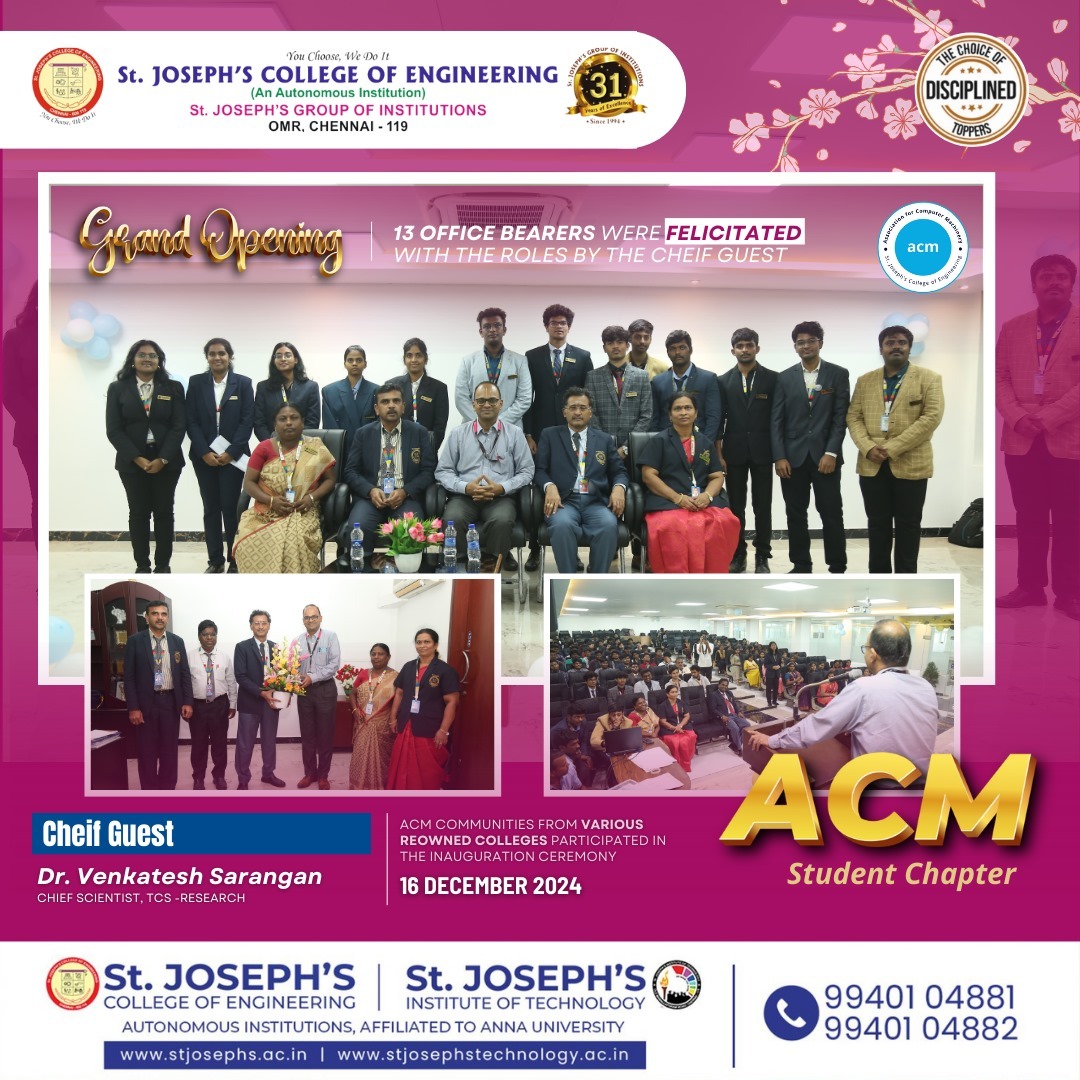
ACM Student Chapter - Grand Opening
13 Office Beares were felicitated with the roles by the chief guest .
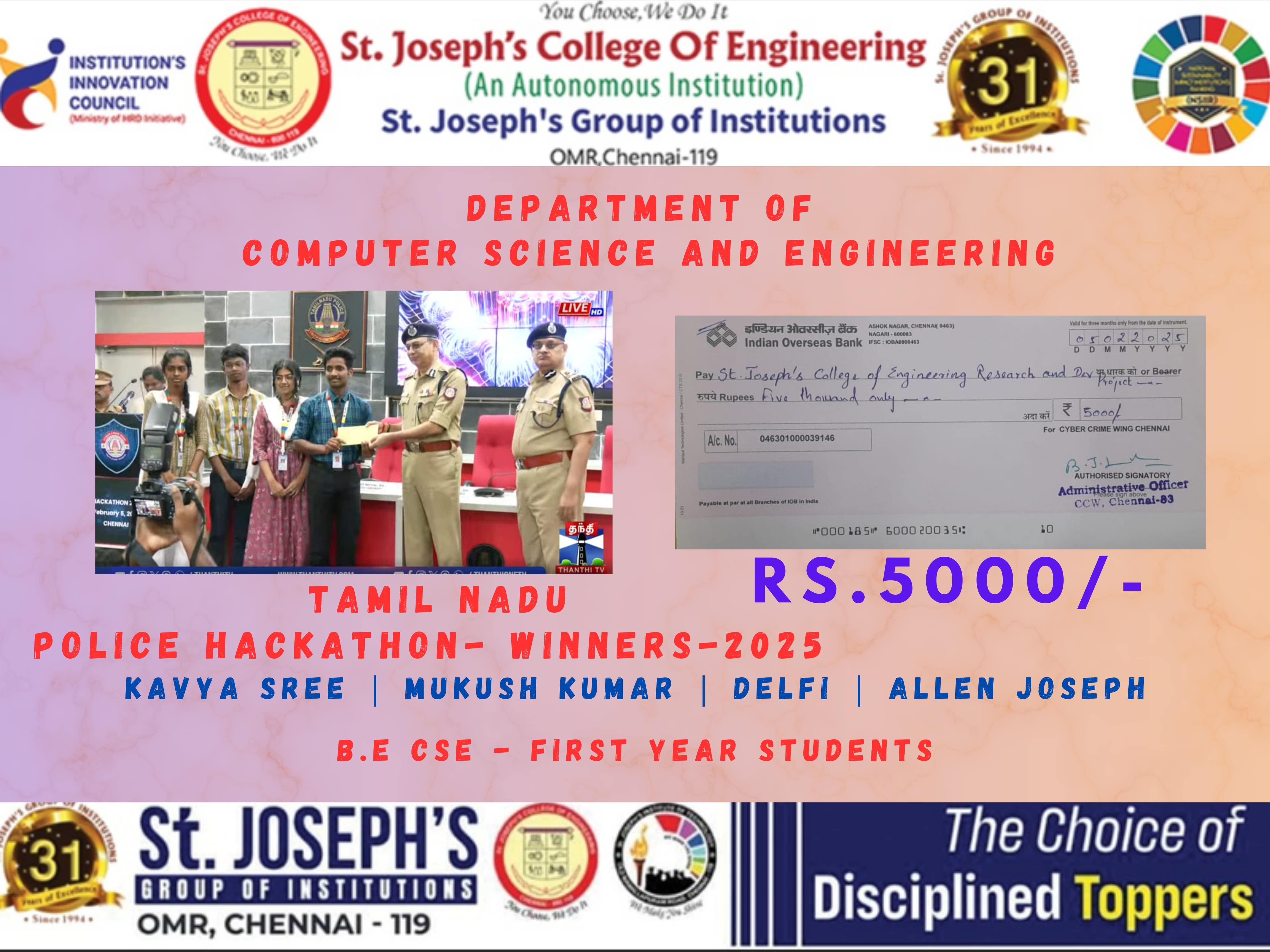
TAMILNADU POLICE HACKATHON
Our First Year Students has participated and won in Tamilnadu Police Hackathon .
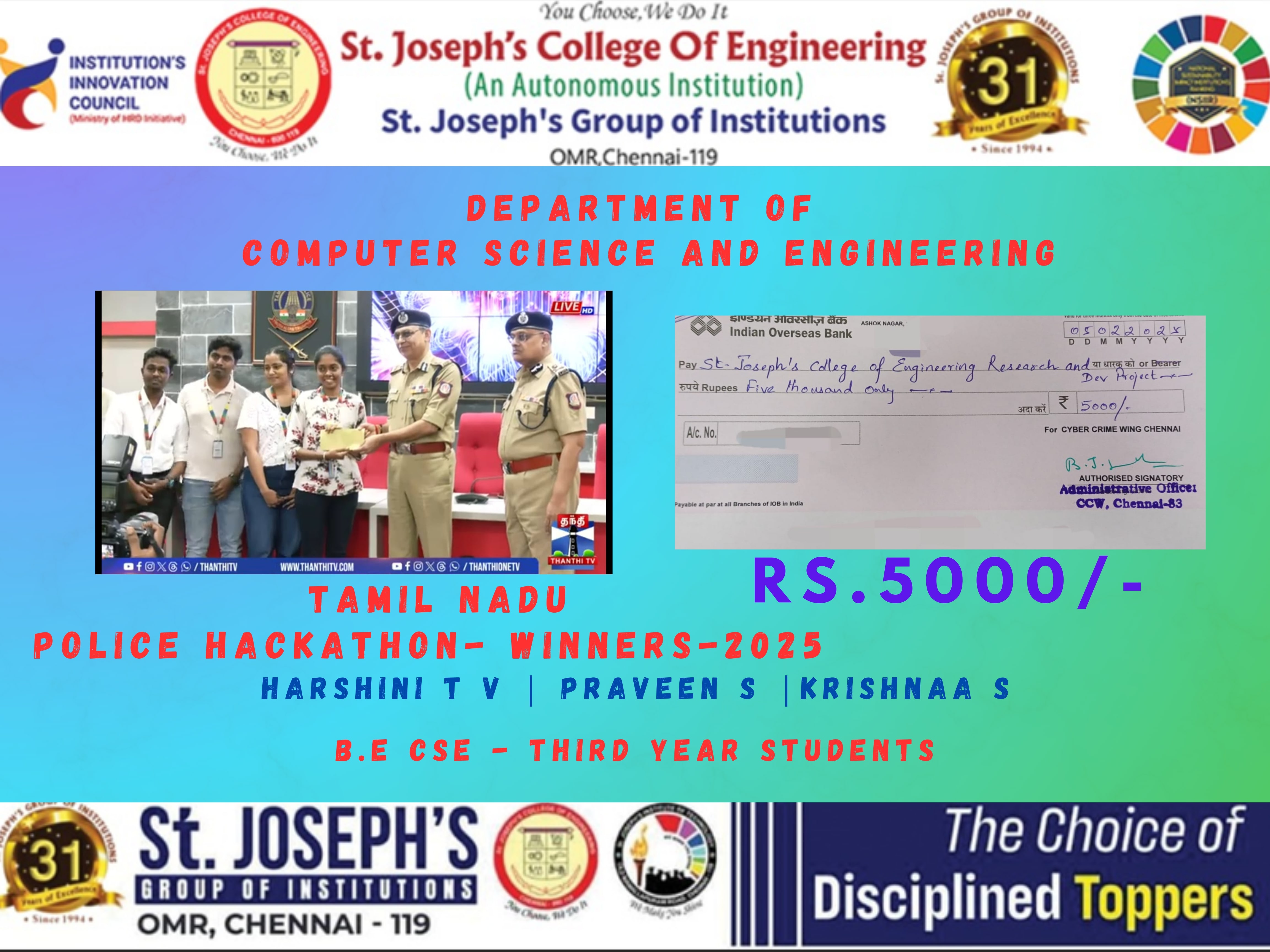
TAMILNADU POLICE HACKATHON
Our Third Year Students has participated and won in Tamilnadu Police Hackathon .
Placement List
sports
Higher studies
Regulations
Laboratory

PROGRAMMING FOUNDATIONS LAB

CLOUD COMPUTING LAB

INTELLIGENT SYSTEMS LAB

WEB WORKS STUDIO
Newsletter:
A newsletter in the Department of Computer Science and Engineering (CSE) is typically a publication created by the department to communicate important updates, accomplishments, events, research, and news to students, faculty, and sometimes alumni or external stakeholders.
Research

Dr.A. CHANDRASEKAR,M.E.,Ph.D,
FIE.,MIEEE.,MISTE.,MCSI
Professor CSE Department
Dean - Research
St. Joseph's College of Engineering
OMR, Chennai-600 119.
Reach Me
Scholar Details
Degree Awarded

Dr. Diwan B, M.E., Ph.D.,
Professor CSE Department
St. Joseph's College of Engineering
OMR, Chennai-600 119.
Reach Me

Dr.Hemalatha R, M.E., Ph.D.,
Professor CSE Department
St. Joseph's College of Engineering
OMR, Chennai-600 119.
Reach Me

Dr.Ahila Devi E, M.E., Ph.D.,
Professor CSE Department
St. Joseph's College of Engineering
OMR, Chennai-600 119.
Reach Me
Scholar Details

Dr Uma Maheswari B, M.E., Ph.D.,
Professor CSE Department
St. Joseph's College of Engineering
OMR, Chennai-600 119.
Reach Me
Staff Patents
Students Patents
Funded Projects
Mou's
Industry Institute Interaction

National Institute of Ocean Technology

Pinnacle Infosys Private Limited - Singapore

General Motors - Bangalore

Defence Research and Development Organisation - Bangalore

VLSI Division - Polaris, Bangalore

ISRO - Bangalore

Tech Mahindra - Chennai
Supervisor Details
Elite Alumni

Kevin Abraham
Batch : 2003-2007
Senior Manager - Analytics & Data Engineering
Deloitte Consulting
United States

VIGNESH H
Batch : 2007-2011
Analytics Manager
Eviden
Frisco
Texas, United States

Jerome M
Batch : 2004-2008
CEO & FOUNDER
Stigmata Techno Solutions
&
Stigmata Academy of Sports and Arts

Ambika Thiyagarajan
Batch : 2005-2009
Senior Software Engineer -Wireless Network Analytics
Cisco
San Jose, California, United States

Menaka Mischella Felix Jayachandran
Batch : 2007-2011
Principal
Boston Consulting Group (BCG)
Washington, United States

Joel Asirvatham J
Batch : 2007-2011
DC Solution Manager
Deloitte Consulting LLP
Orange City, Florida, United States

Vinothini V
Batch : 2007-2011
Customer Success Growth Expert & Consultant Chennai, Tamil Nadu, India

Hariram Subramanian G
Batch : 2007-2011
Lead Data Scientist and Associate Architect
Nagarro
Mumbai

Madonna Florence Ranjini
Batch : 2008-2012
Senior Oracle Technical Consultant,
Innovate Tax,
London, United Kingdom

Jayashree Prabunathan
Batch : 2009-2013
Accessibility Analyst Lead
Google
Fremont, California,
United States

Sowmya Sivaraman
Batch : 2010-2014
Product Manager
Microsoft Azure
Redmond, Washington, United States

Rama Narayan L
Batch : 2011-2015
Software Development Engineer II
Amazon
Seattle, Washington, United States

Kandan Sekar
Batch : 2011-2015
Software Development Engineer
Microsoft
Redmond, Washington, United States

Haripriya V
Batch : 2013-2017
Senior Security Analyst & Security Risk and Compliance
Play Station
San Diego, California,
United States

Yashwanth S
Batch : 2015-2019
Device Associate & Quality service
Amazon
Chennai, Tamil Nadu, India

Akshaya Suresh
Batch : 2013-2017
Senior Software Engineer
Devops-Visa
Mountain View, California, United States

Logeshwaran.T.S
Batch : 2020-2024
Junior Full Stack Developer
Stigmata Techno Solutions
Chennai

Akshaya Suresh
Batch : 2020-2024
SDE I
Rootquotient Technologies Ltd
Chennai
Testimonial

Batch 2022-2024

Batch 2022-2024
Video
Teaching and Learning Process
-
The Teaching-Learning process adopts different methods such as experiential learning, participative learning and problem-solving methodologies utilizing ICT facilities, LMS and e-resources. All the academic activities are carried out strictly following the academic and activity calendar. Proctor dairy system is in place for counselling and to monitor academic and personal issues of students. Necessary efforts are being made in identifying the learning levels (slow and fast) of the students through various assessments and additional training is imparted to slow learners.
- Department encourages academic discussions between faculties and students using black board and faculties shares academic study material using it.
- Use of modern teaching aids like LCD projectors, Wi-Fi enabled laptops are usually employed in classrooms and other student learning environments.
- Expert video subject lectures delivered by the various eminent resource persons are available in the digital library and it facilitates the faculty and students to utilize E-Tutorials of NPTEL, MOOCs access E-Journals, Video Conference, etc.
- Faculty members use department library, digital library and other Open Source platforms to enhance their teaching skills.
- The faculty members are encouraged to participate in short term courses, staff development programs and workshops on advanced topics to keep pace with the advanced level of knowledge and skills.
Activity Based Learning
Effective learning in classroom makes students more creative, practice hands on experiments, enjoy the course and establishes goals. One such dynamic learning method is activity-based learning where students are constantly engaged and actively participate in learning instead of passive listeners. Activity based learning is the baseline for critical thinking skill enhancement. By participating in various activities conducted by mentor in classroom, students enhance their creative and communication skills.
Project Based Learning
The goal of project-based learning is to provide students with meaningful learning opportunities. Although project-based learning can be content-specific, it provides a means of integrating multiple subjects into one cumulative project. PBL encourages students to make meaning from their learning.
Self learning
A form of self-learning is a method of gathering information, processing it, and retaining it without assistance from another individual. It is the responsibility of the learner to acquire and retain knowledge without assistance. Self-learning is a way of learning that allows a person to learn skills and knowledge relevant to their daily lives. Self-learning helps a person in gaining an understanding of the basic concept of learning and it indicates that everyone must learn by themselves. Learning on one’s own also helps a person understand the basic concept of learning that everyone must learn on their own at the end of the day. The resilience and immunity you gain here will be the key tools to success in life. Self Learning/MOOCs Courses are introduced in curriculum to facilitate the slow/advanced learners to learn selected courses of various disciplines to acquire contemporary knowledge.

Innovative Teaching and Learning Methods
View Details

Activity Based Learning
View Details
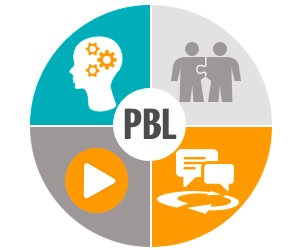
Project Based Learning
View Details

